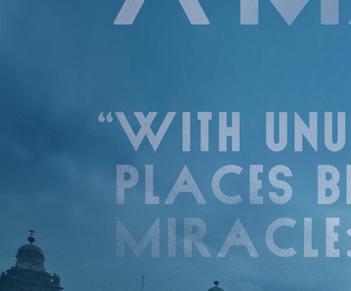THE OFFICIAL MAGAZINE OF THE PRODUCERS GUILD OF AMERICA
PRODUCEDBY MINDY KALING

THE CONTENT QUEEN BEHIND NEVER HAVE I EVER AND THE SEX LIVES OF COLLEGE GIRLS IS DETERMINED TO GIVE VOICE TO THE VOICELESS
INCOMING PGA PRESIDENTS STEPHANIE ALLAIN AND DONALD DE LINE SHARE THEIR PRIORITIES GOING FORWARD P. 42
PRODUCERS DISCUSS STRATEGIES AT A TIME OF UNPRECEDENTED CHANGE IN THE INDIE MARKET P. 73






To watch these Originals and more awards-eligible programming, please visit


FOR YOUR PGA AWARDS
 HOUSE OF THE DRAGON
WINNING TIME: THE RISE OF THE LAKERS DYNASTY
BARRY
THE RIGHTEOUS GEMSTONES WESTWORLD
THE SURVIVOR
THE SEX LIVES OF COLLEGE GIRLS
THE WHITE LOTUS
MINX THE REHEARSAL
IRMA VEP RAP SH!T
MENUDO: FOREVER YOUNG
HOUSE OF THE DRAGON
WINNING TIME: THE RISE OF THE LAKERS DYNASTY
BARRY
THE RIGHTEOUS GEMSTONES WESTWORLD
THE SURVIVOR
THE SEX LIVES OF COLLEGE GIRLS
THE WHITE LOTUS
MINX THE REHEARSAL
IRMA VEP RAP SH!T
MENUDO: FOREVER YOUNG
 THE FLIGHT ATTENDANT PEACEMAKER
SOMEBODY SOMEWHERE THE GILDED AGE
WE OWN THIS CITY
LOS ESPOOKYS THE STAIRCASE
THE LAST MOVIE STARS TOKYO VICE
OUR FLAG MEANS DEATH
THE FLIGHT ATTENDANT PEACEMAKER
SOMEBODY SOMEWHERE THE GILDED AGE
WE OWN THIS CITY
LOS ESPOOKYS THE STAIRCASE
THE LAST MOVIE STARS TOKYO VICE
OUR FLAG MEANS DEATH

“‘THE BATMAN’ IS PURE CINEMA , A GRENADE OF IMAGE, SOUND AND POTENT PROVOCATION READY TO BLOW.”

-
“IT’S A SPECTACULAR MOVIE.”
-
DYLAN

“Martin McDonagh’s Beckettian drama is simply perfect… a visually stunning and consistently witty film.”

FOR YOUR CONSIDERATION in all categories including
BEST FECKIN’ PICTURE
Produced by Graham Broadbent
Pete Czernin
Martin McDonagh
“You’re in for a display of acting at its FUNNIEST, FIERCEST, AND FINEST. Cements McDonagh’s reputation as a world-class filmmaker.” SearchlightPictures.com/FYC


















PRODUCEDBY
DECEMBER | JANUARY 2023
SCOUT PRODUCTIONS WORKS REALITY MAGIC. 89
FEATURES
42 NEW PGA PRESIDENTS
Stephanie Allain and Donald De Line have hit the ground running.
54
MINDY KALING IS JUST GETTING STARTED
The mastermind behind such shows as Never Have I Ever and The Sex Lives of College Girls excels at razor-sharp comedy that gives voice to the underrepresented. Meanwhile, she’s stretching toward new genres and mentoring next-gen talents.
73 THE EBB AND FLOW OF THE INDIE MARKETPLACE
As the streaming gold mine dries up, the strategies that defined the indie market in its heyday are regaining traction.
80
BIG SCREEN VS. SMALL SCREEN
Four producers weigh in on the pros and cons, and adjusting to the new landscape in the Streaming Age.
89
REALITY GETS ‘SCOUT-IFIED’
The pioneering company behind Queer Eye and Legendary conjures magic behind the marginalized.

98
ATLANTA’S SIREN SONG
Call it “Silicon Peach” or call it “The Black Mecca,” but the Georgia capital can no longer be called a Hollywood satellite.

OUTSTANDING PRODUCER OF THEATRICAL MOTION PICTURES





 Ram Bergman, p.g.a. | Rian Johnson, p.g.a.
Ram Bergman, p.g.a. | Rian Johnson, p.g.a.
One of the Best Pictures of the Year













‘Glass Onion’ offers a clear-eyed and devastating takedown of vapid modern disruptor culture, taking dead aim at the perpetrators but also making sure that the blindly subservient acolytes receive a dressing down too. filmmaker who fuses modern ideas to antiquated narrative forms. A filmmaker who creates huge blockbuster films from original IP. A filmmaker who works within beloved existing IP and thrillingly makes the material his own. It’s tempting to see Benoit Blanc as the closest thing Johnson has given us to an on-screen avatar: an avuncular brainiac trapped between worlds and traditions, but always coming out on top ”


A NEW WHODUNNIT FROM WRITER/DIRECTOR





































CREW MEMBER COFFEE

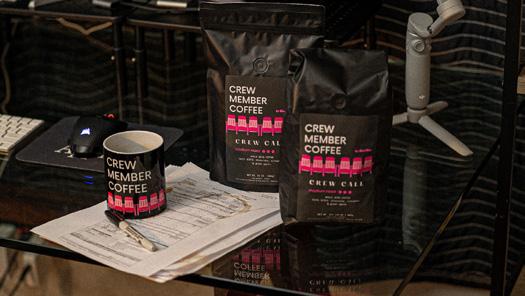
BOARD OFFICERS
PRESIDENTS
Stephanie Allain Donald De Line
VICE PRESIDENTS, MOTION PICTURES
Lauren Shuler Donner Chuck Roven
VICE PRESIDENTS, TELEVISION
Mike Farah Melvin Mar
TREASURER
Yolanda Cochran
VICE PRESIDENT, AP COUNCIL
Lynn Hylden
VICE PRESIDENT, NEW MEDIA COUNCIL
Iris Ichishita
VICE PRESIDENT, PGA EAST
Donna Gigliotti
RECORDING SECRETARIES
Kristie Krieger Mike Jackson
PRESIDENTS EMERITI
Gail Berman Lucy Fisher
NATIONAL BOARD OF DIRECTORS
Bianca Ahmadi Lynn Kestin Sessler Ravi Nandan
James P. Axiotis Samie Kim Falvey Mark Roybal
Fred Berger Rachel Klein Jillian Stein
Hillary Corbin Huang Dan Lin Christina Lee Storm
Melanie Cunningham James Lopez Mimi Valdés
Jennifer Fox Lori McCreary Angela Victor
Beth Fraikorn Jacob Mullen Lorin Williams
Gary Goetzman
Jonathan Murray Nina Yang Bongiovi
REPRESENTATIVE, PGA CAPITAL REGION
Mark Maxey
REPRESENTATIVES, PGA NORTHWEST REGION
Richard Quan John Walker
REPRESENTATIVE, PGA ATLANTA CHAPTER
Suzan Satterfield
ASSOCIATE NATIONAL EXECUTIVE DIRECTOR
Michelle Byrd
NATIONAL EXECUTIVE DIRECTOR
Susan Sprung
PARTNER & BRAND PUBLISHER

Emily S. Baker
EDITOR
Steve Chagollan
CREATIVE DIRECTOR COPY EDITOR
Ajay Peckham Bob Howells
PHOTOGRAPHER
Kremer Johnson Photography
ADVERTISING
Ken Rose 818-312-6880 | KenRose@mac.com
MANAGING PARTNERS
Charles C. Koones Todd Klawin
“
★★★★. A poignantly observed and beautifully acted drama about love, life and the fragile art of moviegoing.”
“Sam Mendes takes us back to the movies with HIS BRILLIANT ‘EMPIRE OF LIGHT.’”

For Your Consideration
In All Categories Including
BEST PICTURE
PRODUCED BY
PIPPA HARRIS, p.g.a.
SAM MENDES, p.g.a.

MASTERPIECE “A


THIS 15-YEAR PASSION PROJECT IS THE WORK OF A TRUE FILM ARTIST.














AN ABSOLUTE DREAM.
“






GUILLERMO del TORO’S perspective runs through every frame.






A SINCERE, SOULFUL EXPLORATION OF WHAT IT MEANS TO BE HUMAN.”
Alex Godfrey, EMPIRE
WITH GUILLERMO del TORO’S ‘PINOCCHIO’, it’s incumbent upon the entire industry to embrace every facet of moviemaking.”
Clayton Davis, VARIETY
“THE BEST A NIMATED FILM OF THE YEAR AND ONE OF THE BEST PICTURES OF THE YEAR . It’ll move you to your core. The most profound del Toro film since ‘Pan’s Labyrinth’.”
Ryan McQuade, AWARDSWATCH
DIRECTOR
Stands alongside the 1933 ‘King Kong’ in terms of the visual and emotional miracles that can be accomplished through stop-motion.”
FOR YOUR CONSIDERATION IN ALL CATEGORIES INCLUDING

GREG YAITANES BELIEVES SELF-CARE IS UNDERRATED
The Emmy-winning producer-director, a high-tech early adopter, believes in working smart via exhaustive prep, a streamlined work process and, most importantly, a healthy work-life balance
Written by steve chagollanTo say that Greg Yaitanes is organized is like saying Stephen Hawking had a knack for numbers. As a coexecutive producer and director on HBO’s Game of Thrones prequel, House of the Dragon—which just ended its first-season run on HBO and employed as many as 4,000 pros at a time—he’d have to be.

A self-described data nut who admits that he loves “process almost more than shooting,” Yaitanes’ obsession with prep and efficiency dates back to his days as exec producer-director of House (2004–12), where he quizzed every crew member about what they would change to make the set a better place to work. The result was a position paper that he convinced NBCUniversal to pay him a million dollars to implement.
“We were looking at ‘Why are we spending 20 minutes to take this wall out three times a day?’ So we just kept changing things,” he says.
Using the mantra that “Every fucking second counts,” Yaitanes and his team ended up saving the company two weeks of man-hours by shaving 18 to 22 minutes off each day of production. It seems minuscule on the surface. But added up, these efficiencies translated into 18 days—or $10 million—in production cost savings on the following season, all by modifying their sets.
Yaitanes was also ahead of the curve in using technology to streamline production. He invested in Twitter early on and gave talks in Silicon Valley, equating the methodology of producing with building a tech start-up.
“One of the reasons I got involved was I knew
(Twitter cofounder)
Biz Stone and followed him through some of his other companies,” says Yaitanes, “and he knew that there would be a connection between tech and Hollywood.”
Yaitanes’ first exec producing gig was on the short-lived series Drive (2007), which earned the first Emmy nomination for content aired exclusively online. It was also the first show in TV history to feature a live Twitter session during an episode. (The handle “@foxdrive” still exists.)
It was the dawn of the iPhone, with apps challenging more analog forms of editing, storyboarding and the like, and diminishing your carbon footprint was a relatively new concept that hadn’t taken hold. “I thought, ‘What can we use to not have paper,’” recalls Yaitanes. “I thought, ‘If I
don’t need paper, I don’t have a copier. If I don’t have a copier, I don’t need to fix it.’ I was looking at where I could find nickels under the couch to put back into the production.”
But for all his technical know-how and meticulous prep, when it comes to maximizing resources, Yaitanes admits that it’s “all about the food.”
“We have a secret Instagram of how bad the lunches were on House of the Dragon,” he says. “We’re thinking, ‘Why is the food so bad?’ And someone said, ‘It’s not made with love.’ I think when you’re feeding the masses, you can’t do that. But as a form of self-care, (proper nutrition) puts me in the right mental space.”
Just as he does mental prep to visualize his day, Yaitanes does meal prep to keep his energy level high. “I eat light,” he says, “because I find that if you eat wrong, it affects your ability to think and your ability to solve problems. It also wears you down.”
Yaitanes also firmly believes in a healthy work-life balance, despite an industry that tends to glorify insane hours. “I don’t believe there is a nobility in working 24/7,” he says. “The first line producer I ever worked with said, ‘This business eats families.’ I have put ambition and hours, the job, the show, in front of everything, and I think that feeding your mind outside of work is important. A nightly wind-down is important.”
FIRST THINGS FIRST
“I’ve got my Tumi Sling bag and I’ve got my Yeti lunchbox, the perfect one that will stay cold for a whole day of shooting. Those are my weapons for going to battle every day.”


FUEL FOOD
“I bring oatmeal, a favorite bowl and a favorite mug everywhere I go since I can always find hot water (House of the Dragon shot in the U.K., Spain and Portugal.) I also bring my Ninja blender since I (drink a smoothie) almost daily at lunch to stay light on my feet. I just keep as much of a routine as I can, so that my full mental energy from the time I wake up is put into the show.”

FAVORED APPS

“We used Box and Pix for our approval system this year and to keep all the information organized and in one place. One of the things that needed to happen was streamlining the approval process for House of the Dragon, because there are so many departments. So I got a dedicated person whose job it was to collect materials that were going into folders and funnel them to (showrunners) Ryan Condal and Miguel Sapochnik or to the directors. With script changes, especially with something as high-security as that, we made sure we used Scenechronize so that people are alerted.”



















WINNER
NATIONAL BOARD OF REVIEW
TOP TEN FILM OF THE YEAR
NATIONAL BOARD OF REVIEW
BREAKTHROUGH PERFORMANCE
DANIELLE DEADWYLER
WINNER GOTHAM AWARDS


OUTSTANDING
LEAD PERFORMANCE
DANIELLE DEADWYLER
ON MY PERSON ALWAYS
“I have an iPhone 13 Pro 6.1 because I don’t like having a big smart phone. I use my iPhone so much as a camera that I hate having a big bulky thing in my hand. I often use it as a tool to communicate between setups if I’m directing, and when I’m producing, it’s my lifeline. It’s also where I keep my audiobooks and photos, and it’s how I access apps like Box, so I can instantly call up an episode and the concept art for what we’re doing. And I always make sure I’ve got some sort of portable charger battery.
“My AirPods are also my lifeline. Between takes or during lighting setups or just observing, I’m always playing an audiobook. I also carry lens wipes since dirty glasses drive me insane; Kosas lip balm; Super Goop sunscreen; and Hu Vanilla Crunch bars, a less guilty version of Nestle Crunch.”


ACTIVITIES TO INSPIRE AND ENERGIZE


“I’m usually driven when I work overseas, and that gives me time to absorb and learn. I’m not super chatty. I need a lot of quiet around both sides of the day, either to get in front of things or to decompress. So I listen to a lot of audiobooks and podcasts. The Mythical Man-Month is a book I especially found helpful in terms of team leading and management. Specifically, the power and giving up power as a producer.

“I also listened to George R. R. Martin’s Fire and Blood on audiobook; took the Eurostar to Paris twice to see the Damien Hirst exhibit; made frequent visits to the Tate, specifically the Cy Twombly room. Because of the time change I was able to keep my LA Pilates practice over Zoom. And an end-of-day tequila is a good way to call it quits and stop answering emails.”

SLEEP SANCTUARY
“I actually went to the U.K. with a year’s supply of Moldex earplugs in my suitcase, plus my favorite eye mask. I believe ‘If you have one, you have none,’ so I bring my creature comforts on location.”

JOIN

















THE MOVEMENT TO ACCELERATE CANCER RESEARCH











Right now, most clinical information is not regularly shared with the researchers who are trying to uncover new information about cancer every day, but you can help change that. Patients can help accelerate research by sharing their data and unique experiences.


When patients stand together with researchers, they can unlock new discoveries and treatments. People with all types of cancer may be eligible to join Stand Up To Cancer, Count Me In and more than 7,500 patients who have already participated in this mission to accelerate the pace of cancer research.
Find out more and sign up to join the movement at StandUpToCancer.org/CountMeIn
Uzo Aduba Stand Up To Cancer Ambassador





































“A deeply personal, compassionate film, ARMAGEDDON TIME is a clear-eyed and emotionally intelligent work of great empathy.”
“ONE OF THE BEST PICTURES OF THE YEAR.”
“ARMAGEDDON TIME is a triumph.”
NEW MEMBERS
Produced By trains the spotlight on some of the Guild’s newest members, and offers a glimpse at what makes them tick.
Nicci Freeman’s line producing credits include Snapshot of Love and The Message She also served in that capacity on the upcoming crime thriller The Gemini Lounge, with Ashley Greene and Emile Hirsch.

AT WHAT POINT IN YOUR LIFE DID YOU DISCOVER WHAT A PRODUCER BRINGS TO THE TABLE?
I was fortunate enough to work my way up from PA to producer, and throughout the years I have seen the amazing and the inept. You learn things from both.
WHAT IS THE BIGGEST MISCONCEPTION PEOPLE HAVE ABOUT THE PRODUCER’S ROLE?
The biggest misconception people have about producing is thinking it’s easy. Producing is a real job. It’s waking up early and going to bed late and being aware of everything that is happening on set and in the office. If you’re doing it right, it’s not just dinners and parties. It’s knowing that every decision you make affects the entire cast and crew beyond just their on-set life. It’s not for the faint of heart. It’s not just an honorary title.
WHAT’S THE BEST PIECE OF ADVICE YOU’VE EVER RECEIVED ABOUT PRODUCING?
“Never demand things of others you wouldn’t be willing to do yourself.”
Devyn Isaacson has earned his stripes as a line producer on the TV movie Next Stop, Christmas and the TV series Cousin Sal’s Sure Thing. He served in the same capacity on the upcoming Home Delivery, with Rainn Wilson, Jimmi Simpson and Lesley Ann Warren.

WHAT DO PEOPLE NEED TO UNDERSTAND ABOUT THE PRODUCER’S ROLE?
Making a film is especially hard. Making the film you intended is even harder. Producers protect the creative vision and are responsible for achieving the best execution possible within the confines of what resources, people and time are available.
WHO OR WHAT INSPIRED YOU TO GO INTO PRODUCING?
The book So You Want to Be a Producer by Larry Turman.
WHAT'S THE BEST PIECE OF ADVICE YOU'VE EVER RECEIVED ABOUT PRODUCING?
“Producing should primarily be about taking care of people. When we remember individuals are contributing to the process, we succeed in supporting them and encouraging collaboration, resulting in the best end product.” —Mike Hofferth
(The X Factor, America’s Got Talent)

OUTSTANDING PRODUCER OF DOCUMENTARY MOTION PICTURE



KYLE MARTIN ESSIE CHAMBERS





“ONE OF THE BEST FILMS OF THE YEAR.


A powerful illustration of how past and present perpetually intermingle in America.”
“A SENSITIVE CONSIDERATION OF RACE IN AMERICA.











































































Told through the chronicle of the Clotilda, the last recorded slave ship — its final voyage was to Alabama in 1860 — ‘Descendant’ explores a history that continues to haunt us and has seeped into the nation’s very soul.”










From the Academy Award ® Winning Teams Behind AMERICAN FACTORY and SUMMER OF SOUL















BETWEEN TWO WORLDS
Theresa Park—the producer on Bones and All who introduced director luca guadagnino to the film’s source material—nimbly straddles her roles as president of Per Capita Productions and partner of New York-based literary agency Park & Fine.
 Written by Theresa Park
Written by Theresa Park
Producing is my third act—I started out as a lawyer (a short-lived stint), became a literary agent, and backed into film and TV producing almost by chance when a client’s prolific film adaptations drew me into that world.

I remain a literary agent, although I represent only a handful of active clients now. Given my deep roots in the publishing world, almost all my film and TV projects are naturally based on books—a lifetime of passionate reading and decades of relationships in the close-knit world of book publishing make books the starting point for almost every one of my creative journeys.
Because I retain a foot in both producing and book publishing, my days are often an unpredictable mix of conversations with
creators, marketing meetings, deal negotiations, and long-term project management ... in both worlds. Here’s a sample day—when I’m not in active production on a set in a remote location. Then all bets are off!
Early Morning Routines
I start every day the same way: a cup of tea, an hour of meditation to set my compass, a walk with the dog

in my West Village neighborhood, then a quick breakfast as I try to answer all the emails I didn’t get to the day before, or that arrived overnight from Europe or LA. The emails might be from a client about her work in progress; an exchange with a foreign filmmaker about the project we are developing together; a debate with entertainment lawyers on the wording of a CAMA (Collective Account Management Agreement) or cover concepts for a forthcoming book.
Lunch
At lunch, I might meet any of a wide range of individuals—actors, publishing execs, screenwriters, directors, managers and agents, fellow producers, fellow literary agents, entertainment lawyers. I
love meeting new people, and I’m always seeking that spark of connection, to discover that interplay of personality traits and personal history that uniquely defines them. Even though most of these meetings are ostensibly work-related, I rarely lunch with the intention of furthering a specific goal. I genuinely find most people in these fields intrinsically interesting. To echo my mother, “Every person is an entire universe!”
Afternoon
Whether at home or in the offices of our 20-person literary agency, I’m usually in back-to-back Zooms—with my producing partners on various independent film projects, perhaps, or hearing pitches from writers interested in adapting one of the studio features I’m producing. In between, I may call a publisher to pitch a client’s novel I’m selling, instruct my BA (business affairs) exec on what to offer a film agent to option a long out-of-print book, and then jump to a studio’s marketing and publicity presentation for an upcoming feature. From time


to time, I’ll check in with literary agents or publishers whose authors’ books I have optioned for development. Since I come from their world, I have a good sense of what they want to understand about the process, and what their priorities are.

Evening
Before dinner (we eat late, often around 9 p.m.), I roll calls with LA. After dinner, it’s time to either read scripts or watch films or TV series I want to see. I’m particularly interested in the work of global auteurs and am most stimulated and energized by artists whose work reflects the preoccupations of unfamiliar cultures and subcultures. I grew up abroad, and am also the daughter of immigrants, so the allure of “foreign” stories and creators—whether inside or outside the borders of the U.S.—remains deeply ingrained in me.
Bedtime
I try to read a little bit for pleasure every night. Reading will always be my first love, and the sweetest way for me to end my day.

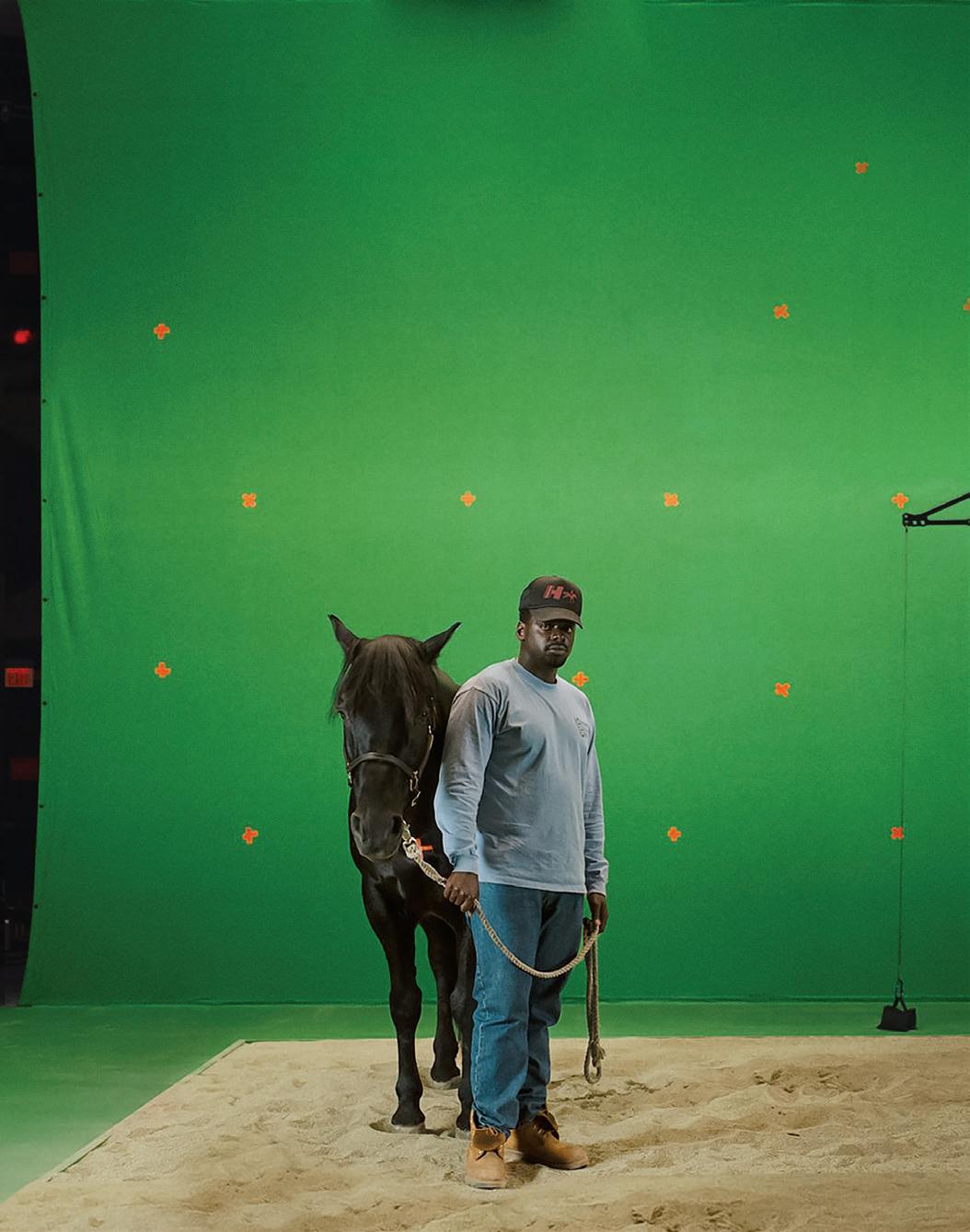



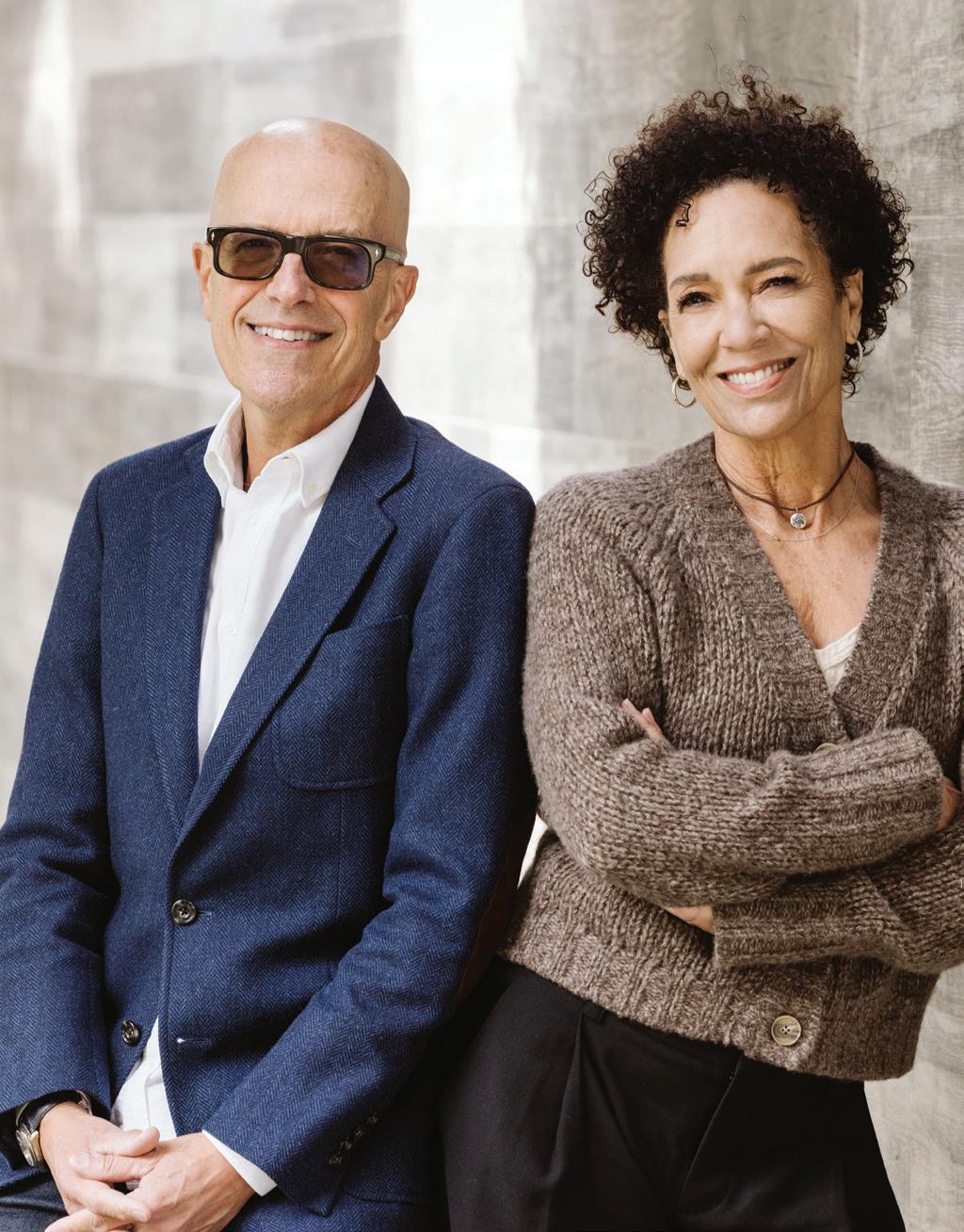
New PGA Presidents Hit the Ground Running
For Stephanie Allain and Donald De Line, fostering inclusion, sustainability, fair compensation and proper due for producers are just some of the items on their agenda.

Just as their predecessors, Gail Berman and Lucy Fisher, made history in 2018 as the first two women presidents of the Producers Guild of America, so too have Stephanie Allain and Donald De Line moved the needle, with Allain becoming the first woman of color to preside over the PGA as president. She and De Line share equal billing. Like Berman and Fisher, the two inhabited high-level studio exec suites before running their own production outfits.
Allain’s resume includes serving as senior VP of production at Columbia Pictures, where she supervised such productions as Boyz n the Hood, directed by the late John Singleton. She and Singleton would later team up as
producers of Hustle and Flow (2005) and Black Snake Moan (2006) while she ran Homegrown Pictures, the film and television production company she founded in 2003. Her other credits include the feature Beyond the Lights (2014) and Dear White People—both the 2014 movie and the Netflix series that sprang from it. She has the distinction of becoming the first Black woman to produce the Oscars, along with Lynette Howell Taylor (2020), and served as the director of the LA Film Festival from 2011–16. De Line is currently developing projects under his De Line Pictures banner, headquartered at Warner Bros. His recent credits include Steven Spielberg’s Ready Player One for Warner Bros., New York Times' Critic’s Pick Don’t Make Me Go for Amazon Studios, and the ongoing series Billy the Kid for MGM+. Prior credits include F. Gary Gray’s The Italian Job, Ridley Scott’s Body of Lies, John Hamburg’s I Love You, Man and M. Night Shyamalan’s first foray into television, the Fox/FX series Wayward Pines De Line began his career as a studio executive with The Walt Disney Company, ultimately serving as president of Touchstone Pictures, which he followed with a tenure as vice chairman and president of Paramount Pictures. His first movie as a studio executive was Pretty Woman
Allain and De Line took time to address questions from Produced By about their new roles and how they view the direction of the Guild going forward.
WHAT MAKES PRODUCING YOUR PASSION AND WHY TAKE ON THE ROLE AS PRESIDENTS OF THE PGA?
Allain: As a producer, I wake up every day excited to work with so many talented artists to create something meaningful and lasting. Something that entertains by being authentic and specific. It’s hard as hell because we don’t get paid for development—whether it takes a year or 10 years—and we have no guaranteed minimums, health insurance or even back-end participation. We do it because we love to tell stories.

That’s why as president of the PGA, I’m working with Donald to raise awareness about what we do, and create better opportunities for all of us. To help foster a community so a new generation of producers can make a living doing what they love. Producers are the only line item on a budget that isn’t protected, and that’s just not fair.
De Line: I joined the Guild at the insistence of my dear
“IF YOU CAN’T JUGGLE, YOU SHOULDN’T JOIN THE CIRCUS. IT’S TIMECONSUMING, BUT SO IS EVERYTHING WORTHWHILE.”
FOR YOUR CONSIDERATION
























































OUTSTANDING PRODUCER OF DOCUMENTARY MOTION PICTURE
































































A tender portrait and fitting tribute to an offbeat hero and creative pioneer.”
Gary Goldstein,
“
One of the year’s best films.”
Robert Levin,


friend Laura Ziskin shortly after transitioning from being a studio executive over 22 years ago. At a time when I was trying to establish myself as a producer, the Guild offered me support, guidance, and a sense of community. My breadth of experience within the industry made me feel now was the right time to help protect the future of our profession and help emerging producers navigate a rapidly changing landscape.
Producing is an exciting and rewarding profession, but it can be a lonely endeavor without a safety net. Producers need to have a will of iron, and we want to support them. I’m excited to work with Stephanie to try and secure health benefits for producers and help educate membership on various solutions for maintaining profit participation, among other things.

“AS A PRODUCER, I WAKE UP EVERY DAY EXCITED TO WORK WITH SO MANY TALENTED ARTISTS TO CREATE SOMETHING MEANINGFUL AND LASTING.”COURTESY OF BRIAN BOWEN SMITH Lynette Howell Taylor and Stephanie Allain producing the Oscars
HOW HAVE YOUR LIVES CHANGED SINCE IT WAS ANNOUNCED THAT YOU WERE SUCCEEDING GAIL BERMAN AND LUCY FISHER?
De Line: I now spend a lot of time giving thought to how we can maintain the respect and standing our profession has commanded since the beginning of the motion picture and television business. The industry needs excellent producers now more than ever. It’s also given me a great opportunity to reconnect with a lot of colleagues I’ve had the pleasure of working with over the years.
Allain: Like most producers, I’ve spent my career juggling work, personal life and public service. I serve on a few boards, have two granddaughters, three employees and a slate of projects I love. Gail and Lucy did a phenomenal job during their tenure, but Donald and I still have more work to do. It takes up a fair amount of time, more than expected, but that’s what we signed up for.
I WOULD IMAGINE THAT GUILD LEADERSHIP CAN BE ALL-CONSUMING. HOW ARE YOU JUGGLING BOTH PERSONAL PROJECTS AND YOUR NEW ROLES?
De Line: If you can’t juggle, you shouldn’t join the circus. It’s time-consuming, but so is everything worthwhile.
Allain: Love that!!
WHAT AREAS DO YOU WANT TO FOCUS ON DURING YOUR TENURE?
Allain: From speaking with producers, the most important issue is figuring out health care. Guild leadership over the years has been working tirelessly to find a solution for our members. We believe that health care for producers should be included in every production’s budget. Every other artist on a line-item budget has health care, and producers should too. It’s that simple.
De Line: There are a couple of pathways to achieve this, and part of the issue is educating members about current opportunities they may not be aware of, such as MPI insurance. If a member does not qualify for MPI insurance, we are looking at creating a funded account where productions can contribute to producers’ health insurance. Either way, it is a top priority, and we’re actively working to find the proper solution to this widereaching problem for producers.
Another important area is our focus on the Guild’s diversity and inclusion initiative and the role it plays in advancing the producing profession. We believe it is important to continue identifying ways that the PGA’s One Guild Steering Group can address the specific needs of underrepresented and underserved producers. By strategically focusing on the Guild’s internal efforts and external collaborations, we can foster a diverse
NEW MEMBERS
PRODUCED BY TRAINS THE SPOTLIGHT ON SOME OF THE GUILD’S NEWEST MEMBERS, AND OFFERS A GLIMPSE AT WHAT MAKES THEM TICK.
STANLEY YUNG
Stanley Yung, who is on staff as a line producer at Black Hawk Entertainment in North Hollywood, has worn a number of hats, including director (Shadow Dancer, 2 Bedroom 1 Bath), producer (The Unbidden) and multihyphenate (the doc miniseries Mastering the Business of Acting). He’s a producer on the upcoming supernatural horror film Nyctophobia

AT WHAT POINT IN YOUR LIFE DID YOU DISCOVER WHAT A PRODUCER BRINGS TO THE TABLE? While working for Roger Corman’s company, I learned what it takes to get a movie made no matter the limitations.
WHAT’S THE BEST PIECE OF ADVICE YOU’VE EVER RECEIVED ABOUT PRODUCING?
“Make it fast, make it cheap, or make it good—pick two.” The old adage still applies at just about every level of producing.
WHAT’S ON YOUR PRODUCING BUCKET LIST?
To make a miniseries about WWII’s (Japanese American) 442nd Regimental Combat Team.
OUTSTANDING PRODUCER OF EPISODIC TELEVISION, DRAMA



CRITICS CHOICE AWARD NOMINEE BEST DRAMA SERIES










“IT WILL HOLD YOU
SPELLBOUND.“




“









AS ADDICTIVE AND CAPTIVATING AS EVER . THERE’S NO DENYING THE SHOW ’ S CONTINUING POWER TO ENTHRALL.”

FOR YOUR CONSIDERATION
























OUTSTANDING PRODUCER OF EPISODIC TELEVISION, DRAMA


















THE BEST TV SERIES EVER CREATED.”





“WILL GO DOWN IN HISTORY AS ONE OF
EMILY BAKER, INEWS
“A TOUR DE FORCE UNLIKE ANYTHING EVER SEEN BEFORE ON TV.” BEN CHILD, THE GUARDIAN
NEW MEMBERS
PRODUCED BY TRAINS THE SPOTLIGHT ON SOME OF THE GUILD’S NEWEST MEMBERS, AND OFFERS A GLIMPSE AT WHAT MAKES THEM TICK.
membership and leadership team and encourage authentic depictions in the work producers make.
Allain: Another initiative we want to grow is PGA Create. Currently in its second year, it is an immersive opportunity for emerging and mid-career creative producers from underrepresented groups to learn from, and engage with, our members and leadership. PGA Create will continue in the spring when we return with the documentary cycle of fellows.
AYSIA BELL
Aysia Bell has worked as a production coordinator on such series as Cousins for Life and Waffle + Mochi, from Barack and Michelle Obama’s production shingle Higher Ground. She has served as a Netflix production exec on such series as From Scratch and Colin in Black & White

AT WHAT POINT IN YOUR LIFE DID YOU DISCOVER WHAT A PRODUCER BRINGS TO THE TABLE?
In college I was the senior producer for our student news live webcast. This experience allowed me to see everything behind the scenes for making TV content, from booking talent to segment producing and editing.
WHO OR WHAT INSPIRED YOU TO GO INTO PRODUCING?
Every project I have been a part of inspires the inner producer in me. I’ve thought of other roles I could have in the industry, and I’m always led back to the world of production. I’m a nuts-and-bolts kind of thinker, so the physical production aspect has always been what I’ve gravitated toward.
WHAT’S THE BEST PIECE OF ADVICE YOU’VE EVER RECEIVED ABOUT PRODUCING?
Pay it forward! I have been lucky to work with amazing producers and crews thus far, who have taught me so much. I hope that I can share what I’ve learned with someone else coming up in the industry.
WHAT’S ON YOUR PRODUCING BUCKET LIST?
To be an Emmy-winning producer and be able to travel and produce in other regions.
We also believe the issue of climate change is a vital topic. Donald and I are making sustainability one of the top priorities of our presidency, furthering the Guild’s efforts and role as an industry leader in sustainability. Seeing the Guild bring this fight to a global scale last year at COP26 (The UN Climate Change Conference) was inspiring, and we want to do more work on that level that puts our initiatives front and center for both industry and global leaders.
De Line: As part of our sustainability initiatives, the Guild has already laid out the steps productions need to take to become greener. It is our job to educate our members, and the industry as a whole, on how they can further reduce carbon emissions on set. We will continue to build on the Interguild Sustainability Alliance, partnering with other unions and guilds to amplify our work in the space. To further that push, we have just hired a new head of sustainability to identify and address new areas for action.
THERE HAS ALSO BEEN A RECENT CONVERSATION AROUND THE TOPIC OF BACK END FOR PRODUCERS. IS THIS AN ISSUE THAT YOU WILL BE TAKING ON?
De Line: It is critical that producers are valued and appropriately compensated. While we aren’t a union and can’t negotiate salaries, the issue of profit participation is important to a large portion of our members. The erosion of back-end participation has been detrimental to producers. It has not gone unnoticed by the Guild, and we have every intention of building a strategy to both examine and confront this problem. We are currently in the process of creating a task force to address the issue.
Allain: Producers work for free for years developing projects without getting paid until prep starts. And then typically we get a one-time fee. Often that fee is the first line item to be cut to get a green light. There used to be development fees and back ends that guaranteed that in success, producers would enjoy participating in the financial windfall. Without it, producers are having a hard time making ends meet. It’s simply not fair. So we are building a strategy to educate the industry
about the challenges we face and propose equitable solutions that value producers as an intrinsic part of the process.
THE PANDEMIC PROPELLED UNFORESEEN CHANGE IN THE INDUSTRY, WHILE THE BUSINESS MODELS CONTINUE TO SHIFT DAILY. WHAT EXCITES YOU ABOUT THE PROFESSION GOING FORWARD?
Allain: We know the power of representation is crucial to creating a more just world, and film and TV are the vehicle for that change. Covid may have emptied theaters for a minute but if you stay in this business long enough, you know everything moves in cycles and producers are an intrinsic part of the process. We are so badass, not even a pandemic could stop production! But it did make us all consider our reason for being. It reminded us that time is short and there’s so much work to do. Thank goodness for Zoom meetings, so we don’t have to spend all our time in the car!
De Line: It’s also a time for producers to really make an impact. There is a greater desire than ever before for socially conscious and responsible storytelling in our industry, and it’s a charge we should embrace and welcome as producers. We have the chance to tell stories that are inclusive on sets that are environmentally sustainable—an exciting prospect for the future of our profession and the industry as a whole. ¢



Mindy Kaling IS JUST GETTING STARTED
The mastermind behind such shows as Never Have I Ever and The Sex Lives of College Girls has excelled at razor-sharp comedy that gives voice to the underrepresented. and the opportunities she’s handing to diverse, next-generation talents amount to a Hollywood makeover.
written
by steve
chagollanPhotographed by Ari Michelson
Content queen. In-demand actor. Best-selling author. Name-above-thetitle showrunner. A burgeoning brand unto herself.
In the 17 short years since she joined The Office’s writers room, Mindy Kaling’s rise has been no less than startling, not to mention groundbreaking. She hits all the requirements of today’s enlightened Hollywood. She paints fresh canvases as a storyteller. She gives voice to the voiceless. She pays it forward as a mentor. If she epitomizes new-school sensibilities, she got to where she is through old-school training and selfcreated opportunity, starting with “write what you know.”
Like Shonda Rhimes and Ryan Murphy before her—who, like Kaling, stoke fascination and controversy in equal measures—she gained her strength and influence as a writer first, which has allowed her to create worlds American TV viewers have rarely seen until now.
Everything that bears Kaling’s stamp reflects who she is. That’s true of projects she initiates like The Mindy Project or Never Have I Ever, both with Indian American heroines at the center. And it’s true of legacy properties that she puts her own stamp on, like her multi-culti take on Four Weddings and a Funeral. That reflection can be rosy or distorted, with the conflict between how she and her characters see themselves in the world versus the way they’d like the world to see them.
About that “brand” business? Kaling’s not sure whether to embrace it or run the other way. “There is a part of me that thinks, ‘When you
start thinking about your brand, you’re done,’” Kaling tells Produced By, though she acknowledges some consistent themes in her work. “I think some of the identifying characteristics of my shows are bright women and underdogs trying to break out from stereotypes.”
The other part of Kaling embraces change and chooses the road less taken. “Part of the fun of my career has been to try to defy expectations whenever I can. I want to do things that are new to me. I think that’s how I’m going to grow as an artist,” she says.
Kaling cites Jordan Peele as somebody who broke out of their comedy roots to master another vocabulary entirely. “He has the most comedy cred,” she says, “and now he’s created this whole genre of horror that belongs to him. I want to do that too. I’m that ambitious.”
Kaling’s ambition, not to mention her abilities, are no surprise to the people she’s worked with. Greg Daniels, the original showrunner of The Office who hired Kaling for the NBC sitcom’s debut season in 2005 , says she “mastered every department super fast”—writing, acting, producing, directing. “She has mogulized quickly, and with great taste.”
That Daniels turned Kaling on to I Love Lucy is telling. In other words, Kaling’s tastes and influences are not limited to her generation, and she still gets nostalgic for the traditional network model that caused viewers to wait a week in anticipation of what happens next, versus binge-watching an entire series over a weekend.
Her shows require an army of collaborators, but her production imprint, Kaling International, founded in 2012, stands as a leanand-mean operation. Kaling, partner
Part of the fun of my career has been to try to defy expectations whenever I can. I want to do things that are new to me. I think that’s how I’m going to grow as an artist.”

and company president Jessica Kumai Scott, plucked from Hulu, and their two assistants make up the entire enterprise. But their track record is strong and their industry voluminous, with nearly two dozen projects in the works. Those include a Legally Blonde sequel and a comedy centering around L. A. Lakers owner Jeanie Buss.
Kaling International was recently featured as one of Time magazine’s 100 Most Influential Companies, while Kaling’s deal with the Warner Brothers Television Group, inked in 2019, has paid dividends for both entities. The Sex Lives of College Girls, partly inspired by Kaling’s experiences at Dartmouth, is considered one of HBO’s most successful series to date.

Greg Daniels was first exposed to Kaling’s work when he saw her off-Broadway play Matt and Ben (2002), which she cowrote and costarred in with her best chum from Dartmouth, Brenda Withers. Kaling’s stage presence benefited from her experience in stand-up and improv, arguably the two most naked forms of performance.
“I didn’t immediately want to hire her,” recalls Daniels. “I just enjoyed her acting. Then her spec script came across
my desk and I loved it. I realized she could do both at a high level, and since I was looking for writer-performers, she was a perfect fit.”
The Office began as a midseason replacement. Daniels, tasked with reimagining the original BBC series, maintained its mockumentary conceit, but brought his own spin. “I wanted The Office to feel more handmade and more of a comedy troupe like Monty Python,” he explains. “So I hired a lot of writer-performers, and also encouraged the cast and editors to direct, and the cast to improvise.”
It couldn’t have been easy for Kaling to adapt to this new environment. She was the only woman in the writing room during that first season, and a woman of color at that. To make matters even more intimidating, fellow writers Mike Schur and B.J. Novak., like Daniels, were Harvard alums who wrote for The Lampoon
“There’s this really rigorous system that you come from when you do The Lampoon ,” explains Kaling. “It really trains you for these high-pressure environments.” (Daniels, an SNL and Simpsons writer, would go on to cocreate Parks and Recreation and King of the Hill, while
FOR YOUR CONSIDERATION


OUTSTANDING PRODUCER OF LIMITED SERIES TELEVISION





WHAT A CRIME
DECIDER
“AN UNDENIABLE ZEITGEIST HIT.”







“AN ABSOLUTE MUST-SEE.”

HYPE


“REWRITING
DRAMA CAN LOOK LIKE.”





Schur would end up cocreating Parks and Recreation , Brooklyn Nine-Nine and The Good Place ). Kaling, whose application to Harvard was rejected, called the experience “exhilarating” and “terrifying.”
“It was all the things that happen to you when you have this job that you wanted so badly,” she recalls, “and you think it could get ripped away at any time. I was on what was considered a doomed show that had only been picked up for six episodes, so I didn’t have the certainty that I would be in LA if the show didn’t come back.”
The show took off, going from six episodes in its first season to 22 in its second, with Kaling doing double, sometimes quadruple, duty as writer-actor-producerdirector. (Her character was customer service rep Kelly Kapoor.) To demonstrate her commitment, she would show up an hour early and leave an hour later than everybody else. With 16- to 18-hour days the norm, Kaling would end up as the most prolific writer, earning 24 solo credits in her eight years on the series.
By the time Kaling spearheaded her own show, The Mindy Project, as part of an overall deal with NBCUniversal, she had played every leadership role in front of and behind the camera, including executive producer on The Office. It would earn Kaling six Emmy nominations, five as a producer and one as a writer.
And it was Daniels, she says, who laid the foundation for her future success.
“Greg is probably the single most important person to have helped me in my career,” says Kaling. “When I was coming up, if you were a person of color, you either had to make it on your own or you needed somebody to validate you. Greg was that person. He was also this incredible mentor who gave me access—to edit, to be on set. He wrote episodes with me to help me learn this format, which I didn’t know anything about. So he took a risk on me. I think about him all the time because I try to make the same kind of active choices now that he did because it had such a profound effect on me.”
Kaling not only became the poster gal for “just do it,” but her edgy sense of humor was evident from the get-go. In the final episode of season 1, called “Hot Girl,” which she wrote, Amy Adams guest starred as a salesperson who’s allowed to use the office to sell purses, attracting the unwanted attention of virtually every male on staff. The creepy, inappropriate behavior on display, particularly from manager Michael (Steve Carell) and lackey Dwight (Rainn Wilson), is cringeworthy, more than a decade before the #metoo movement might have put the clamps on such storylines in a comedy.
It also foreshadowed Kaling’s talent for tackling serious issues beneath the sitcom veneer of her subsequent shows. The at-times outrageous antics that characterize The Sex
Lives of College Girls, which she cocreated with Justin Noble, are the series’ ostensible draw. But such themes as income disparity, gender bias, Greek-life elitism, and sexual assault—matters often swept under the rug—eventually rise to the surface in a more sobering light.
Matt Warburton, who worked with Kaling on The Mindy Project and several projects since, including cocreator on the Four Weddings reboot, was among the 20-something writers who palled around with Kaling in those formative days.
“We were a bit of a support group for each other,” recalls Warburton, who wrote for The Simpsons when Kaling joined The Office. “At the time, it was thought that
“I’M REALLY, REALLY PROUD OF HOW MANY WOMEN, AND HOW MANY WOMEN OF COLOR, HAVE DIRECTED OUR SHOWS. A COMEDY DIRECTOR HAS TO BE GOOD AT SO MANY THINGS ... IF IT’S NOT FUNNY, IT’S NOT FUNNY, AND WE’RE GOING TO MOVE ON UNTIL THE SCENE WORKS.”
TV comedy was done with and reality TV was experiencing a boom. I thought, ‘This person is really cool, and they’re going through the same challenges of being the youngest person on the writing staff.”
When The Mindy Project was in its nascent stage, Kaling invited Warburton to a roundtable at her house, and they clicked immediately. “We wrote a lot of the jokes that ended up in the pilot,” he says. “Then I happened to be available when the show got picked up. That was about 10 years ago, and we’ve been working together ever since.”
On The Mindy Project, Kaling had gone from No. 11 on The Office call sheet to the star of her own series. She played Dr. Mindy Lahiri, an OB-GYN. The profession was a nod to her mother, a Bengali OB-GYN from Mumbai, India, who moved to Boston with her architect husband, a Tamil raised in Chennai, in 1979, the year Kaling was born. As “judge, jury and executive producer” on her own show, as she describes it in her book Why Not Me?, Kaling practically lived on the Universal lot, running back and forth between the writers room and the set.
“It was like, ‘Great, let me just like stay here until 10 at night and come back at 6 in the morning,’” recalls Kaling. “I had an enormous amount of prep as an actor the night before, just making sure I knew my lines cold. I had gone through every scene to make sure there wasn’t going to be rewrites, so that during the day I could be a really active participant onstage.”
But wearing multiple hats took its toll, especially on what Kaling calls “a good old-fashioned network show,” subject to ratings and the whims of viewer habits.
“We just lived in constant fear,” says Kaling. “It was a Universal show for Fox, which already made it a little more tenuous because we weren’t the home team; we were the farm team. I was terrified that if I didn’t work hard, we’d get canceled. And then we did get canceled”— which prompted a migration to Hulu for three seasons.
If The Mindy Project didn’t last as long as Kaling would have liked, the relationships she made were lasting. “I went on to collaborate with the writers on that show on all my subsequent shows,” she says, including Matt Warburton, Lang Fisher, Ike Barinholtz, Chris Schleicher and Tracy Wigfield. Fisher calls them a “murderers row of great comedy writers.”
Craig Erwich, president of Hulu Originals, insisted on keeping Kaling in the family by finding her a project after The Mindy Project had run its course. Jonathan Prince, a longtime TV writer-producer, found the 1994 hit Four Weddings and a Funeral in the MGM archives. He reached out to Howard Klein, Kaling’s producing partner and manager at 3 Arts Entertainment, who brought it to his star client. Richard Curtis (Notting Hill, Bridget Jones’s Diary), who wrote the original, and would surely have his bust carved into the Mount Rushmore of rom-com writers, served as a consultant on the redo.
Kaling and Warburton’s mutual love of rom-coms made them the perfect match to reimagine Four Weddings as a 10-episode miniseries that aired on Hulu in 2019.
Curtis, who was largely hands-off, offered his professorial advice when prompted. “I was happy because he came to table reads,” says Kaling, “and gave us input about the format. I’m such an admirer of him, and we loved and reference his movies so often (in all our shows). One thing I love about him is that people like to argue about his work.” (Love Actually, anyone?)
NEW MEMBERS
PRODUCED BY TRAINS THE SPOTLIGHT ON SOME OF THE GUILD’S NEWEST MEMBERS, AND OFFERS A GLIMPSE AT WHAT MAKES THEM TICK.
ARI LUBET

Ari Lubet is a literary manager and producer at 3Arts Entertainment. He was an executive producer on the Netflix series American Vandal, which won a Peabody Award. His feature producing credits include Sundance 2019 entry Hala, one of Apple’s early forays into the feature film market. He is an executive producer on the original series Players for Paramount+, which premiered in June.
AT WHAT POINT IN YOUR LIFE DID YOU DISCOVER WHAT A PRODUCER BRINGS TO THE TABLE? An established healthy creative trust between artists and producers yields great communication, efficacy and results. I’ve found this to be true, and it has been reinforced on every project I’ve worked on, from student films to television shows and feature films. Artists need creative allies and fundamental support to do their best work.
WHEN PEOPLE ASK YOU WHAT A PRODUCER DOES, WHAT IS YOUR ANSWER IN A NUTSHELL? Adaptability is the quintessential intangible skill required to excel.
WHAT IS THE BIGGEST MISCONCEPTION PEOPLE HAVE ABOUT THE PRODUCER’S ROLE? That anyone can do it well. It is a complicated and nuanced position that requires a steadfast commitment to incisive communication, complex decision-making and, most importantly, active listening. To me, the distance between producing and producing well is the difference between a noun and a verb.

Adds Warburton: “Unlike a lot of reboots, we just had so much respect for the movie that we did not want to remake something that was in our mind pretty perfect to begin with. We wanted to tell a story about a multicultural generation, which is something the original movie did not do, because demographics were so different when it was made. We wanted to see what London is like now.”
That London is populated by mixed-race couples, old money and new, American ex-pats, and dyed-in-the-wool locals. As with all rom-coms, casting was key. Warburton had observed on The Mindy Project that “we ended up punching way above our weight with guest stars,” whether it was Seth Rogan, the Duplass brothers, or Julia Stiles, “because Mindy had a way of making it a fun place to hang out and identifying something they don’t normally get to do.”

As cocreators and exec producers on Four Weddings, the two—along with the Hulu brass—had the first say and the last word on casting. “You had to take a leap of faith, because the way the show was put together, there wasn’t a spot for a big-name person at the top,” says Warburton.
The most recognizable actor was colead Nathalie
Emmanuel, fresh off Game of Thrones. But the big discovery was Nikesh Patel as Emmanuel’s love interest. “We knew we wanted a person of color from an Indian or Pakistani background who’s British,” says Warburton. “He was just so charming and handsome, and so good at the romance stuff.”
The chemistry between the two leads is touchingly established in the first episode when Emmanuel’s Maya, a political operative, and Patel’s Kash, an investment banker who’d rather act, find themselves thrown together in the lost-and-found luggage room at Heathrow. The scene is key because they are uncharacteristically honest with each other, despite being complete strangers, and the audience must invest in them, despite all the ensuing complications.
“That’s a scene we reshot a couple of times,” recalls Warburton, “because Mindy considered this such an important moment in the series. In an earlier version of that scene, we were still getting to know these characters and the actors, and it wasn’t working. Mindy said, ‘Whatever it takes, that particular scene has to be perfect.’ So we completely broke it down to the studs and reshot the whole thing.


NEW MEMBERS
PRODUCED BY TRAINS THE SPOTLIGHT ON SOME OF THE GUILD’S NEWEST MEMBERS, AND OFFERS A GLIMPSE AT WHAT MAKES THEM TICK.
Mindy is really good at being able to identify where that extra effort is going to pay off the most.”
The series was shot completely in London, with 40% of the writing staff from the U.K. and all four directors British citizens. That approach paid off in verisimilitude. “We were really scared that we were going to sound like a bunch of Americans stomping around in London,” says Warburton. “Having British directors was enormously important—just as important as having some (U.K.) writers. Because on the day (of shooting) they can say, ‘This just does not sound realistic at all.’ And we could tailor it. We were on their turf and tried to be really respectful.”
In Mindy World, nobody expresses shock or dismay if a key character comes out of the closet, Facebook is for geezers, verbal zingers and pop culture references fly fast and furious, and no comic detail is too small. In a blink-and-you-missed-it text exchange between Maya and her married politico boyfriend—just exposed for having an affair with his dog walker—you see the almost buried line “We bonded over dachshunds and it went a little nuts!” on her iPhone.
CHELSEA DEVINCENT
Chelsea DeVincent’s feature credits include senior producer on Disney’s Hocus Pocus 2, line producer on The Old Ways, and unit production manager on Wildcat

AT WHAT POINT IN YOUR LIFE DID YOU DISCOVER WHAT A PRODUCER BRINGS TO THE TABLE?
In my early 20s, I was working for a couple of producers who could fill any role on a production. Seeing how they were able to communicate with the rest of the crew because they knew how all the pieces fit together was inspiring.
WHEN PEOPLE ASK YOU WHAT A PRODUCER DOES, WHAT IS YOUR ANSWER IN A NUTSHELL?
Creative problem-solving.
WHAT IS THE BIGGEST MISCONCEPTION PEOPLE HAVE ABOUT THE PRODUCER’S ROLE?
That our job is to say no. Our job is to work with the team to find the best solution for everyone involved.
Slanguage is also par for the course, like “try-hards” (ultracompetitive whiz kids obsessed with being at the top of their class), “chuckle fuckers” (frat boys who have sex with a woman because she’s funny and not necessarily sexy), and “catharcism” (the desire by media figures to publicly confess their sins to achieve absolution).
Movie titles are often employed as verbs or adjectives, as when Whitney (Alyah Chanelle Scott), the Black star soccer player in Sex Lives, surveys the scene at a Kappa sorority mixer and says, “This is some Get Out shit right here.”
Never Have I Ever, entering its fourth season on Netflix, might be Kaling’s most fully realized project. Like Sex Lives, it centers on a group of ethnically diverse gal pals, mostly nerds obsessed with romance.
Lang Fisher, who cocreated Never Have I Ever with Kaling and who was a showrunner on TMP, describes their three-step writing process, during which scripts are workshopped to perfection: from the story pitch (“like improv where you bounce ideas off each other”) to the actual writing by the anointed staffer to the “punch-up” phase. “Usually the showrunner is sitting at the keyboard,” she explains, “and everybody’s watching on the monitor what you’re typing. You’re going through it line by line, with everybody pitching jokes to make the lines funnier. Then the showrunner decides what jokes stick and you put them in the script.”
The whole process takes about three weeks. “In that third week you usually do a table read to see what things land and what things need work. Then you do a second rewrite. Then it’s usually ready to go.”
Although it takes place in Sherman Oaks, California, the concept for Never Have I Ever was inspired by Kaling’s experiences in Cambridge, Massachusetts, where, says Kaling, “there were only two other Indian kids in my entire childhood growing up.” Never’s central character is Devi Vishwakumar, a whip-smart 15-year-old Indian American played by Maitreyi Ramakrishnan, torn between being too Indian and not Indian enough. Like Kaling’s character in The Mindy Project, Devi vacillates between a love interest who’s her intellectual equal and the unattainable dreamboat of her fantasies.
KALING IS JUST GETTING STARTED
“It’s the classic conundrum of who is right for you,” explains Fisher. “Is it somebody exactly like you who challenges you and you feel a little bit competitive with? Or is it somebody who isn’t like you at all, but is kind of how you wish you were? That’s fun TV, too. Whenever you see a slo-mo of a hot person walking toward the screen, I think everyone gets excited.”
Adds Kaling: “Indian American girls on my shows want to do something that is unconventional or surprising. I’m always debating two sides.”
The word “surprising” also comes up when Fisher talks about the series, whether it be the narrative format—the VO is by veteran tennis bad boy John McEnroe, playing John McEnroe—or the overall concept. “We wanted a show that felt familiar but also was surprising,” Fisher explains.
“Mindy did this in The Mindy Project back in the day when she was the only South Asian lead of a romantic comedy television show,” adds Fisher. “I think she wanted to do the same thing for the teen genre, showing this young Indian American girl and having all the trappings of a YA comedy, because you just hadn’t seen that before. It was important for both of us to show a story about an immigrant family with nuance to all these characters, that they have many different sides to them.”
To achieve this, Kaling and Fisher thought it crucial to have diversity in the writers room and behind the camera. “If you have a director who sees our story and recognize themself in it, it really helps their directing,” explains Fisher. “Then we obviously had to have a large number of South Asian writers, because these are stories only they can tell.”
Adds Kaling: “I’m really, really proud of how many women, and how many women of color, have directed our shows. A comedy director has to be good at so many things, like how to get a comedic performance out of

actors. If it’s not funny, it’s not funny, and we’re going to move on until the scene works.” As for diversity, Kaling is simply following her mentor Greg Daniels’ model of nurturing young new talent.
“Whether it’s writers, actors, directors,” she says, “I want to stick them into that ecosystem where they learn and not be so scared of failure, so that they’ll stick with me and create new shows with me.” Pay it forward, indeed. With Sex Lives, Kaling upped the ante in the risqué department. The depiction of hookup culture in the series’ fictional Essex College is maybe the worst nightmare for protective parents sending their daughters off to a university. Amrit Kaur, who plays Bela among the show’s quartet of soon-to-be-besties, might be the closest to a Kaling alter ego. Bela aspires to be on staff of the school’s humor magazine, The Catullan (Kaling contributed to Dartmouth’s Jack O’ Lantern for a year), and impresses one of the editors by identifying Sid Caesar on a wall of photographs in the magazine’s hallowed offices.
Bela, like her roommates, is obsessed with washboard abs and casual sex. But according to Kaling, their bark is bigger than their bite. “Like the girls on a lot of my shows,” she says, “it’s a lot of talk and not as much action. This was definitely not my experience (in college). I was like a shy theater nerd, a prude. I feel more like Kimberly (played by Pauline Chalamet) on the show.”
But Kaling’s phalanx of young writers saw things a bit differently. In other words, the naked party that’s depicted in season 1 did not come out of thin air. “We went to Yale and Dartmouth and stayed there for a week, interviewing tons of young women about their experiences,” says Kaling. “The naked party is a real thing at Yale.”
The explicitness of certain scenes was such that an intimacy coordinator was added to the staff. “That was a big learning curve for us,” says Warburton, a writer on the show.
OUTSTANDING PRODUCER OF EPISODIC TELEVISION DRAMA


“ THRILLING.














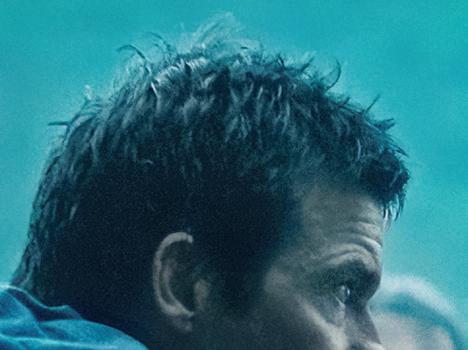


THESE ACTORS, AND THE WONDERFULLY DELICIOUS CIRCUMSTANCES PRODUCERS PUT THEM IN, KEPT ME WATCHING EVERY SECOND OF EVERY EPISODE.” NPR





Going forward, Kaling, with the help of Dan Goor (Brooklyn Nine-Nine) is still hard at work writing the screenplay for Legally Blonde 3, at the personal request of Reese Witherspoon. She was also endorsed by Jeanie Buss and Linda Rambis, the Lakers’ executive director of special projects, for the so-called Lakers Project for Netflix. “Buss’s experiences as president of the Lakers are absolutely incredible,” says Kaling, who enlisted Ike Barinholtz and David Stassen, both from The Mindy Project, as cowriters.

“As a writer, you couldn’t dream of better stories,” she adds, “coming from a wildly dysfunctional family, and then to be this beautiful blonde in LA who made the choice not to get married, not have kids, and to run this team in this male environment with these huge personalities that at times can be very sexist.”
Kaling is also moving away from her comic comfort zone toward drama. She optioned a book called Playing Dead: A Journey Through the World of Death Fraud, by Elizabeth Greenwood, a New York Times bestseller that explores the notion of disappearing without a trace. “It’s not naturally
comedic,” explains Kaling. “People who fake their own deaths are inherently fascinating for obvious reasons.”
She credits her manager Howard Klein for opening up new vistas in her career. “I’ve always been an ambitious person,” she says, “and he was always the person who helped me articulate that ambition.”
It was Klein who convinced her to parlay her 11.4 million Twitter following into personal essays drawn from her own life that would engage readers, resulting in three New York Times bestsellers, beginning with 2011’s Is Everyone Hanging Out Without Me? (And Other Concerns)
At the 34th Annual PGA Awards in February, Kaling will be honored with the Guild’s Norman Lear Achievement Award, recognizing her extraordinary work in television. She’ll be following in the footsteps of such lofty, brand-name vets as Shonda Rhimes, Amy Sherman-Palladino and Lorne Michaels.
“I am never surprised by Mindy because I know and love her talent and her work ethic, modesty, and values, and I have always expected great things,” says Daniels. “I believe she is just getting started.” ¢


As the streaming gold mine dries up and studio specialty divisions wither on the vine, the strategies that defined the indie market in its heyday regain traction. But the one-sizefits-all model doesn’t apply in today’s shifting landscape.
Written By Anthony Kaufmanor a couple years there, it looked like independent producers were hitting rock bottom.
With major studios and streamers abandoning indies for tentpoles and turnkey movie star packages, two years of stunted virtual markets and weak theatrical ticket sales, and huge cost increases due to COVID protocols and inflation, there’s only one way to go for the specialized film industry as it emerges from one of its worst periods ever—and that’s upward.
While pivoting to new modes and models has been the catchword of our pandemic years, independent producers are turning to the types of financing and producing structures that have largely defined their sector for decades. As Micah Green, CEO and co-president of 30WEST, says: “The distraction of crypto, the distraction of streaming being ‘easy money,’ or that ‘theatrical doesn’t matter’—all those things being in the rearview mirror are allowing most of us to continue to get films made and return to efficient financing, licensing, selling, and working with streamers and studios, without being entirely dependent on them.”
AN ASTERISK ON ‘TRADITIONAL MODELS’
In other words, the bedrock strategies that defined the leading indie companies in their heyday are being dusted
off. “We’re starting to go back to the traditional models,” agrees Stefanie Azpiazu, Likely Story’s EVP of development and production. “We recently had a project where we found equity financiers, sold international through FilmNation, and took out a loan on that film— it’s tried and true,” she says.
While Likely Story was one of the fortunate ones to have a first-look deal with Netflix, having produced with them such pre-pandemic titles as Tamara Jenkins’ Private Life and Nicole Holofcener’s The Land of Steady Habits, Azpiazu admits that the streaming gold mine has dried up. “That era of Netflix financing indies is over, as their interest has gone to the middle and higher range,” she says.

For lots of indies, that’s meant a return to standard pathways such as reliance on equity financing, soft money, cast attachments and selling at festivals and markets, despite some lingering pandemic challenges.

But even as those standard pathways may be returning for “most of us,” as Green says, a lot of independent producers are still struggling.
Many producers note that surviving the current paradigm shifts has meant working with lower budgets. Azpiazu says Likely Story’s budgets have dropped from $10 million to the $6 million to $7 million range. According to Lars Knudsen, producer of Midsommar and most recently The Northman, his approach, familiar to his days scrappily working in New York City during the Great Recession, has been simply “to go into plan B mode—and that is, ‘What is the lowest amount this movie can get made for without the filmmaker compromising their vision?’ We’re not going to get paid right away, but we are going to get the movie made.”
“THAT ERA OF NETFLIX FINANCING INDIES IS OVER, AS THEIR INTEREST HAS GONE TO THE MIDDLE AND HIGHER RANGE.”
—STEFANIE AZPIAZU, EVP OF DEVELOPMENT AND PRODUCTION AT LIKELY STORY
“I WON’T TAKE A PROJECT IN WITHOUT CAST ATTACHED AND PROJECTED SOFT MONEY AND RELIABLE TAX CREDITS, BECAUSE THE CLOSER TO TOMORROW YOU CAN SHOOT A MOVIE, THE BETTER.”
—STEPHEN “DR” LOVE, A PRODUCER ON NETFLIX’S UPCOMING THEY CLONED TYRONE
“LET US NOW PRAISE BILL NIGHY! EVERYTHING FROM THE OPENING CREDITS TO AN IMMACULATE SCRIPT BY THE REMAINS OF THE DAY’S



KAZUO ISHIGURO MAKE THIS FEEL LIKE ONE OF THE RARE OCCASIONS WHERE EVERYTHING ALIGNS JUST RIGHT. AN ABSOLUTELY GORGEOUS, HEARTBREAKING PIECE OF WORK.”
–David Fear, ROLLING STONE

BILL NIGHY
ALL CATEGORIES INCLUDING



BEST PICTURE
Produced by STEPHEN WOOLLEY ELIZABETH KARLSEN
BEST DIRECTOR
OLIVER HERMANUS

BEST ACTOR
BILL NIGHY





BEST ADAPTED SCREENPLAY



KAZUO ISHIGURO

“THE YEAR’S FUNNIEST FILM.”

“THE MINIONS HAVE STOLEN OUR HEARTS, AGAIN.”
THE CASTING EQUATION
When working with a first-time director or putting together a film without an easy genre tag, Knudsen acknowledges that cast attachments are more essential these days, which is a “hard game to play,” he admits, because of increasing competition from episodic content. And “every time you go for a big name,” he adds, “you never even know how often the agent talks to their client.”

Stephen “Dr” Love, a producer on Netflix’s upcoming Jamie Foxx sci-fi comedy They Cloned Tyrone, agrees that due to the downward pressure on budgets—because of what distributors are willing to pay for the movie—“I won’t take a project on without cast attached and projected soft money and reliable tax credits, because the closer to tomorrow you can shoot a movie, the better.”
EQUITY PLAYERS AND THE CHANGING NATURE OF ‘THEATRICAL’
Producers continue to be creative in leveraging such tax credits around the country, and the world, keeping tabs on the latest incentives through websites such as Entertainment Partners’ production incentives map.
“The good news is that there is also a lot of equity out there,” says Echo Lake Entertainment President Andrew Spaulding. Even during our current stock market volatility, “There are highnet-worth individuals who want to be in that space as they look to diversify their portfolios,” he adds. “We are seeing things getting made at the lower end of the scale without international presales, and then getting sold.”
Cold Iron Pictures’ Miranda Bailey, producer of Swiss Army Man and God’s Country, says she makes sure financial partners have “realistic expectations” nowadays, but believes films that have already been financed through equity have more options. “There’s more opportunity now to take a film to the
agencies and sell it because of the new streamers coming in,” she says.
To survive in the current environment, Tommy Oliver, the founder and CEO of Confluential Films, argues that producers need to understand that the pathways to success have changed because the definition of “theatrical” movies has changed. “There are still a lot of opportunities if you’re willing to be truthful about what you’re doing and where it fits,” he explains. “I think people are holding onto an erroneous understanding of what a theatrical movie is or should be, and if it’s not theatrical, you need to understand the path to recoupment.”
But understanding that path within a rapidly changing, digitally dominated economy—where information is often kept private—isn’t easy. Oliver says it’s a constant learning curve. “I am an information junkie,” he says, citing companies like Parrot Analytics as an essential
resource. He adds that Variety’s Strictly Business podcast is another way to keeps tabs on what types of projects and budgets are working and what kinds of deals are being offered. “I read as much as I can,” he says. “I talk to agents and financiers. I absorb data points.”
THE SEESAW VALUE OF INTERNATIONAL SALES
Recently, one of the most profound shakeups for indies has been the collapse of international presales—with a persistent dearth in such fraught territories as Russia and China—but executives are seeing a global bounce. “As of this Cannes, I think it’s coming back. But I don’t think the rates are as high as they were before,” says Bailey, whose latest film, Raised Eyebrows, starring Geoffrey Rush and Sienna Miller, benefited from presales via
“IF YOU WANT TO BE A REALLY GOOD PRODUCER, YOU HAVE TO UNDERSTAND THE DIFFERENCES AMONG DISTRIBUTORS IN ITALY VERSUS KOREA VERSUS AUSTRALIA, AND
YOU’RE ALSO GOING TO SEE DISTRIBUTORS WITHIN TERRITORIES HAVING THEIR OWN UNIQUE PROFILES. UNDERSTANDING THAT SOPHISTICATION IS GOING TO BE INCREASINGLY IMPORTANT.”
—DAVID LINDE, CEO OF PARTICIPANT MEDIA
Bankside at this year’s Marché du Film.
David Linde, CEO of Participant Media and an international sales veteran, agrees that international sales are reemerging, but he says the current times require a more “superfocused” and “sophisticated” approach. “We think earlier about which distributors are really going to be inclined to buy, looking less bureaucratically and more individually, and that’s a big change,” he says.
“When people say ‘international’ now, you also have to ask what country,” Linde explains. “If you want to be a really good producer, you have to understand the differences among distributors in Italy versus Korea versus Australia, and you’re also going to see distributors within territories having their own unique profiles. Understanding that sophistication is going to be increasingly important.”
International sales may be rebounding for the likes of bigger independents such as Participant, FilmNation and StudioCanal, but they’re by no means available to all projects.
THE VALUE OF AUTEUR VOICES
Significant Productions’ Nina Yang Bongiovi, the BAFTA-nominated producer of Passing and Fruitvale Station,
has never financed the company’s films off presales, because the industry still doesn’t ascribe any international value to stories about people of color. “That’s a stab in our hearts,” she says, and “(makes it) harder to finance, but we’ve gotten used to that.”
For Bongiovi, getting movies made continues to be about convincing equity financiers, key crew people and ultimately buyers, of the specific value they bring to the market. “As a producer of color, I constantly preach about what we can do to change the paradigms of Hollywood and launch filmmakers like Ryan Coogler, Boots Riley, Chloe Zhao and Rebecca Hall,” she says. “It’s about motivating people to be proud of something that’s different and goes against the grain.” Indeed, independents’ best-known secret amid the current media-saturated marketplace may be their perceived quality and uniqueness of vision. “There is a scarcity of very high-quality, audience-pleasing movies right now,” argues 30WEST’s Green. “By focusing on a very small number of projects, from (Palme d’Or winner at Cannes) Triangle of Sadness to The Crow, and not trying to dominate the market with volume, we’re providing consistency of quality and exciting talent, and we believe there’s a significant need for that in the

RESOURCE GUIDE
Parrot Analytics (Global Audience Demand) parrotanalytics.com
Variety’s Strictly Business Podcast variety.com/t/ strictly-business
Map of Production Incentives ep.com/ production-incentives
Currency Risk Management Corpay Cross-Border provides tailored global payment and currency risk-management solutions to PGA members engaged in international production. Corpay’s services and hedging tools help with planning and budgeting foreign exchange expenses, and protecting the value of tax credits and pre-sales.
For more information, visit producersguild.org/ globalpayments
independent space.”
Lars Knudsen, who formed a partnership with Hereditary and Midsommar director Ari Aster, agrees. “Our way of staying relevant is working with these auteur directors—filmmakers who have a name and a brand and can be their own events and withstand the ups and downs of the marketplace,” he says. “If you’re good enough, you’ll rise to the top, and if you’re not, you’ll sink.” ¢
“I THINK PEOPLE ARE HOLDING ONTO AN ERRONEOUS UNDERSTANDING OF WHAT A THEATRICAL MOVIE IS OR SHOULD BE, AND IF IT’S NOT THEATRICAL, YOU NEED TO UNDERSTAND THE PATH TO RECOUPMENT.”
—TOMMY OLIVER, FOUNDER & CEO OF CONFLUENTIAL FILMS


Big Screen vs. Small Screen
 Written By Rob Feld
Written By Rob Feld

The death and/or dismemberment of theatrical film distribution is hardly a new topic of industry consternation. The cost of real estate, prints, and advertising; the impact of shrinking release windows; competition with a growing variety of accessible media and leisure activities; and now the convenience of streaming platforms— these all take their daily toll.
Theater owners have taken some of these hits for decades. Some have tried to compensate by embellishing the theatrical experience with luxury options, from seating choices to wine service. But even with some encouraging 2022 box office successes such as Top Gun: Maverick or Smile (the latest Avatar had yet to be released by press time), cinema attendance overall remains below pre-pandemic levels. Exhibitor chains like Pacific/ArcLight have bitten the dust as a result, while

Four producers weigh in on the pros and cons, and adjusting to the new landscape in the Streaming Age.
Cinemas, has filed for bankruptcy.
With no crystal ball in an inherently risky business, many producers shepherding projects into the world are reframing their perceptions of what a proper release looks like.
“I love going to the movies, and I’m a proponent of the theatrical experience,” says Hidden Pictures Founder Todd Lieberman, an exec producer of two films in the Divergent series, as well as producer of the live-action Beauty and the Beast (2017) and the upcoming Shotgun Wedding (2023). “But the economics are different now. The bets are bigger and scarier, so I’m also a proponent of not having theatrical when it’s not warranted. Part of me is excited about this moment when not every single time we put out a movie needs to be a roll of the dice that a theatrical release will work.”
Even in the best of times for movie theaters, like when art-house offerings by Bergman, Tarkovsky or Kurosawa could play in a theater for extended periods as an audience slowly discovered and coalesced around them, a theatrical release was a highly speculative venture.
One can try to de-risk with star performers and top filmmakers, building a purportedly surefire, can’t-miss package. But then one can end up either holding
down the barrels of surprise mega-hits like My Big Fat Greek Wedding or Little Miss Sunshine, wondering how that just happened. Setting aside the idea that movie houses might disappear from the landscape entirely, what new, revised, or de-sentimentalized purpose could a theatrical release now hold for producers?
Theatrical’s Ripple Effect
“What we found is that a successful theatrical revenue generator can help promote the film significantly once it hits the streamer,” says Atlas Entertainment CEO and cofounder Charles Roven, whose producing credits include The Dark Knight (2008), American Hustle (2013) and the recent Mark Wahlberg-Tom Holland actionadventure Uncharted, which has grossed almost $402 million worldwide since its February 10 opening.
“Uncharted had released theatrically four months before but was No. 1 on Netflix for weeks once it arrived, and remains a significant player,” adds Roven. “I think studios will tell you that even if they didn’t get what they were looking for from theatrical, the release generated upticks in viewership from what they were
expecting once it hit streaming.”
Back in the day, home video—first considered by some to be of negligible value but later a necessary component of a film’s returns—could ultimately make a film profitable, which happened to such cult faves-turnedclassics as Blade Runner , Fight Club and The Big Lebowski
Producers also note that the financials of each project are different and not every film demands the same scale to be considered successful. “My movie Nanny (2022), was acquired by BlumhouseAmazon,” explains Stay Gold Features founder Daniela Taplin Lundberg. “The plan is for a strong theatrical play. But it’s clear that the ultimate strategy is for a strong streaming release. So in a way, unless you’re making Top Gun, the new world allows for a little more creativity in terms of what success looks like.
“Together Together (2021) made a little over a million dollars at the box office,” adds Lundberg, “but because of COVID, timing, a subsequent deal with Hulu, and our foreign deal with Sony, it was considered a financial and critical success.”
Inherent Risk vs Unpredictable Reward

Questions producers are asking themselves include: Is the decision to go theatrical content-neutral? What complex set of factors make the bet worth it? What barometer steers that decision, even as it is theirs to make?
“Today’s situation doesn’t change what could be distributed theatrically,” says Nate Moore, vice president of production and development at Marvel Studios and producer on Black Panther: Wakanda Forever, which raked in $330 million globally over its opening weekend in November. “But it might change what people think of as a theatrical film.” Moore posits that there’s less patience with platform strategies that might help specialized
FOR YOUR PRODUCERS GUILD OF AMERICA AWARDS CONSIDERATION







OUTSTANDING PRODUCER OF LIMITED SERIES TELEVISION


releases find an audience in the way mini majors once skillfully did, without worrying about the first weekend’s box office. “An unfortunate consequence is that those kinds of movies that we all enjoy—sometimes the best movies of the year—are put straight to the consumers (via streaming) because it feels easier and the risk is lower,” he says.
Moore is also quick to argue that a studio’s distribution decisions at any given moment are as dependent on the proclivities and powers of its current players as those of any baseball team. So strategy will not be uniform across the board, or predictable when leadership changes. The 1927 and 1998 Yankees both wore pinstripes in the Bronx, but that’s where the similarity between teams ends.
“I think our current situation is allowing risk-averse companies to be even more risk-averse than they typically would be,” says Moore, “rather than rolling the dice and seeing what could happen with the proper marketing. People are now being asked to take bigger swings at ideas and IP, and maybe encouraged to find a safe home for what in the past would have been considered a mid-tier movie. So it’s a little feast or famine.
“I think the unintended consequence is a reach for big ideas as if the big idea was the savior,” Moore adds. “But the truth is that making movies is inherently risky. To try and insulate yourself from failure by taking the biggest or the smallest swings is just not how it works.”
Test Drive Before Touring
Roven suggests maintaining distribution agnosticism until the results of aggressive audience testing are known.
And that, of course, is still not foolproof.
“Only after you have made the movie and tested it and your marketing materials can you make the final decision of how the movie should be released,” says Roven. “If the audience has a desire to see it, they’re going to go to the movies to see it if that’s the only way they can. If the only way they can see it is on a streamer, they’re going to go to that streamer—if that streamer has marketed it well. The most important thing is to have people come out of the viewing experience saying, ‘I really liked that. I’m going to tell my friends about it.’”
Roven speaks with a voice of practicality that carries with it years of experience with tidal changes and a great diversity of film genres. “I don’t think you can preemptively say, ‘You can’t release a movie like that theatrically,’ or, ‘You shouldn’t release a movie like that on a streaming platform as its first window,’” he says. “Who would have thought Smile could do what it did? If you look at what Smile did ($210 worldwide, as of November 14), Uncharted or Top Gun: Maverick (closing in on $1.5 billion), you see
theatrical clearly working for a number of different genres.”
‘Make Stuff You Believe In’
Is there a way to think about packaging a project in this environment to better safeguard a theatrical release? Moore suggests rethinking marketing, trailers, posters, and titles in a way that speaks to niche audiences and makes releases distinct from one another, rather than “sanding down the edges to feel like the biggest, meatiest softball down the middle for audiences (in an effort) to get everyone on opening weekend.”
But as Moore puts it, there are no guarantees in an inherently risky business. Talk with any film producer, and screenwriter William Goldman’s timeless truism—“Not one person in the entire motion picture field knows for certain what’s going to work”—hovers over the conversation. “The time and place where a movie hits emotionally for audiences has never been predictable,” Moore says. “The history
“Our current situation is allowing risk-averse companies to be even more risk-averse than they typically would be, rather than rolling the dice and seeing what would happen with the proper marketing.”
Nate Moore, producer, Black Panther: Wakanda Forever
FOR YOUR PRODUCERS GUILD OF AMERICA AWARDS CONSIDERATION



OUTSTANDING PRODUCER OF EPISODIC TELEVISION-COMEDY




of cinema will bear that out. To try and predict it feels like a fool’s errand.”
“Audiences are going to respond to what they respond to,” Moore adds. “We always forget that every five years there’s a study about how talent doesn’t directly relate to eyeballs. Then we get into the cycle of, ‘Wait, it’s not true.’ Maybe we should just make good movies?
“Even as more companies become parts of bigger corporations who look at things from a strictly bottom-line perspective,” he adds, “that’s a tricky way to make movies because it’s not who designs the best car wins.”
Moore’s bottom-line suggestion: Rather than trying to anticipate what will lure audiences into theaters, “Make stuff you believe in.” In other words, creative risks translate into seminal movies—the kind of movies his generation of filmmakers grew up loving.
With so much uncertainty and so many more channels that could support a wider array of storytelling, why cling so tightly to theatrical, especially when the ground continues to shift almost three years after COVID altered the landscape?
“I think we producers are asking ourselves the theatrical question, knowing the choice isn’t going to be solely up to us,” says Lieberman, who suggests that gut instinct is underrated. “I’m a firm believer that if something is moving me or making me laugh, it will move or make other people laugh as well. Can I make the argument, ‘Because I love it, 10 million other people will love it in the theaters?’ No one would listen to me, but it’s really what it comes down to.”
Back-end vs. Short-term Money
In the past five years, as streamers
like Netflix, Amazon, and Apple have gone from “disruptors” to mainstream players in the movie business, theatrical windows have shrunk from the standard 90 days to as short as a week. This shift has taken its toll on producers whose bread and butter often relied on back-end rewards based on box office revenue. And with some streamers still proprietary about viewing numbers, an upfront buyout fee is often a producer’s only recourse. But it could also work as insurance against box office disappointment.
“A box office hit with the traditional backend scenario is much more financially valuable than selling to a
worldwide streamer for a buyout,” says Lieberman. “I’ve had theatrical movies work really well, and I’ve had theatrical movies not work at all. In the world of streaming, you exchange the chance for real upside for a level of calm. But that’s a good trade in a lot of circumstances. You could take a swing at box office and wind up with nothing.”
Just as in any business, the onesize-fits-all approach is becoming as dated as video stores or broadcast network dominance. The idea that every feature should be released theatrically is not just a foolish proposition; it’s simply not the world we live in, contends Roven.
“I’m a producer,” he says, “so why wouldn’t I want to participate more in the biggest successes, as we have historically in the theatrical or television business? I’m hoping we may be moving in that direction with the streaming services. But depending on what your experience is as a producer, getting a significant percentage as a buyout that guarantees you a profit above your fee is not such a bad thing. There are companies that historically don’t even do buyouts, and others are starting to loosen up on that a little bit. We’ll have to see where that goes.”
There can be no greater optimist on the planet than a filmmaker: optimism that producers’ deals with streamers would come to recognize the value of those who created a successful film, and optimism that the marketplace will eventually find a way to balance the existence of different distribution systems in ways that consumers want, as it has historically.
In the meantime, to maintain true north, Lieberman reduces the big question to its essence: “As audience members, what would make us want to get up off our couch and go see this? It’s as simple as that.”
“Unless you're making Top Gun, the new world allows for a little more creativity in terms of what success looks like.”
Stay Gold Features founder Daniela Taplin Lundberg
FOR YOUR PRODUCERS GUILD OF AMERICA AWARDS CONSIDERATION



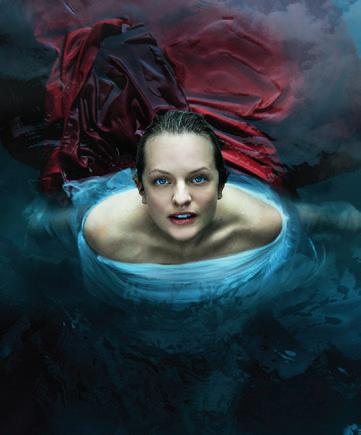

OUTSTANDING PRODUCER OF EPISODIC TELEVISION - DRAMA


Reality Gets ‘Scout-ified’
The pioneering company behind Queer Eye for the Straight Guy and Legendary conjures the magic behind the marginalized.


 Written By Robert Abele
David Collins
Renata Lombardo Rob Eric
Written By Robert Abele
David Collins
Renata Lombardo Rob Eric
Where stars are born, producers often are, too.
In 2003, when Scout Productions cofounder David Collins was in New York trying to get his big bold reality idea Queer Eye for the Straight Guy into pilot shape, he was staying at the apartment of Carson Kressley, one of Collins’ audition finds. Collins hoped Kressley would become a gay superhero—one of five such makeover specialists—for viewers energized by this burgeoning TV genre highlighting real people.
But on those New York trips, every time Collins started airing his grievances about producing the show, Kressley’s art school-educated roommate would roll his eyes, implying that he knew how to fix it. As in: “Well, if you’d just hired me.…” The roommate, who had his own design company and skin care line, had also auditioned for the show, but didn’t
make the Fab Five.
Ultimately Collins picked up on the fact that the roommate, Rob Eric, was “a creative renaissance genius,” and born to be a producer on the culturally groundshifting, award-winning smash.
Today Eric and Collins can laugh about the lemonade-from-lemons beginnings of their deep friendship. Eric now oversees creative strategy and artistic execution at Scout as its chief creative officer and is an executive producer on all the company’s programs.
“It’s beautiful how it’s worked over 20 years,” says Collins. He describes his and Eric’s alchemy as the former’s “passion and fire” meeting the latter’s “creative prowess.” Whatever project they throw their energy behind, “We always end up together in the middle holding our baby, and it looks half like him, half like me.”
When it comes to Queer Eye, which was rebooted on Netflix in 2018 to even

more acclaim, awards, and cultural impact, Eric can extend the parenting metaphor. “We now have full-grown children we can be proud of,” he says.
It’s a professional partnership that has helped elevate the company Collins and Michael Williams cofounded in 1994 as a Boston-based film enterprise into an unscripted producing powerhouse. Among its successes: the voguing competition series Legendary and streetwear design contest The Hype on HBO Max, and the Disney+ fantasy competition series The Quest
In the pipeline are upcoming series in the works at Peacock (The Gentle Art of Swedish Death Cleaning with Amy Poehler) and Hulu (a yet-to-beannounced dating show), plus a new documentary division that produced the gay rights history docuseries Equal. The latter has led to fertile partnerships with Vanity Fair and Buzzfeed.
FOR YOUR CONSIDERATION IN ALL CATEGORIES INCLUDING BEST DOCUMENTARY FEATURE
“A TRIUMPH. AN INCREDIBLE TRUE STORY TOLD WITH CARE AND SKILL.”
“A RIVETING JOURNEY INTO THE WILD”

FOR YOUR CONSIDERATION IN ALL CATEGORIES INCLUDING BEST DOCUMENTARY FEATURE
MELISSA LESH • TREVOR BECK FROST ALYSA NAHMIAS • JOSHUA ALTMAN
IN SELECT THEATERS DEC 21
RYAN WHITE • JESSICA HARGRAVE • BRANDON CARROLL MATTHEW GOLDBERG • JUSTIN FALVEY • DARRYL FRANK
Scout’s cachet is considerable, but according to Collins, it requires diligence to prioritize the passion they need to make something more than a network’s or streamer’s desire to be in business with them.
“You can’t sell it if you don’t believe in it,” he says. “I’m not 20 anymore. I no longer have it in me not to love something. I know what it takes to not only come up with the idea, but to develop it and get the sizzle reel, deck, and sales materials ready to pitch. And when they say yes, I know the amount of work to get it delivered to air. That’s a two-year window of your time, right? It’s a commitment. And we have ideas coming left and right. So in success, I think learning to say no has probably been our hardest lesson.”
Eric says the producer in him makes it hard to dismiss an idea. “Don’t show me a rope with a knot in it and think I’m not going to try to take that knot out of it!”
Even in the current climate of upheaval at the streamers, with layoffs and reorganizations and rethinking about programming, Scout isn’t slowing down. Credit their established hits, solid relationships, and reputation for turning a concept into a visually dazzling, richly entertaining show. “If you’ve got money to spend on something,” says Eric, “are you going to spend it on someone you don’t know, or on somebody who will give 100% because you’ve worked with them before, and they made a mountain? What we’re most proud of is people trust our aesthetic and our storytelling.”
When Legendary was developed
at Scout, the idea was to celebrate what was magical about the ballroom world—the voguing balls, the spectacle, the performative invention, the closeness that distinguishes each house—rather than reinforce its history as a marginalized culture.
“It could quickly feel like we were stepping into something that wasn’t ours if we didn’t do it right,” says Renata Lombardo, who brought Legendary to Scout before joining the company to develop it. Scout brought in representatives from the ballroom community, consulted with leading lights like Jack Mizrahi (House of Gucci) and Dashaun Wesley, asked what they’d like to see, and discovered that this was a culture ready for the grandest spotlight. “The community



pushed us to think bigger.”
That meant instead of a docuseries, doing a glitzy, impeccably designed competition show in the style of a ratcheted-up American Idol or The Voice. And yet inside each glittery, music-filled hour of eye-popping fashion displays, choreographed dance-offs and wittily raucous judging—more than 17 cameras cover the stage action—there’s room for backstage moments and lively, poignant, pre-filmed interviews with each house. After the first season, filmed in a Connecticut studio for the tax breaks, HBO Max was happy enough with the response—especially how it exploded on social media—to let Scout move the production to Los Angeles.
Rob Eric says that with the success of Legendary, followed by The Hype with its stylish focus on hot young
designers plus jazzed-up sizzle reels, project decks, and vision boards for pitch meetings—there’s now a term in the industry for what they do: Scoutified. “When we push the aesthetics up with unscripted to make it bigger and better, that’s referred to as being Scout-ified,” says Eric. “The networks will call and say, ‘We have this idea; we need it to be Scout-ified.’”
That descriptor also refers to another key aspect of Scout’s producing identity: inclusiveness behind the scenes and in front of the camera. Collins knows Scout is seen as a gay outfit because of Queer Eye, but he prefers the term “omnicultural,” which to him suggests all communities. “People need to tell their stories,” he says. “That’s how we connect—when we see the humanity in each other.”
Lombardo, who is now Scout’s senior vice president in charge of unscripted programming, calls that omnicultural mindset a responsibility, and the industry has noticed. “I can’t tell you how many times people want to meet us because they’re like, ‘I want to understand how you guys got a show on the air for three seasons with a cast primarily of black, brown, queer and trans people.’”
Queer Eye and Legendary proved what happens when so-called niche is given the chance to reach a wider audience.
“We’re making TV for the masses, not only for people to see themselves, but to be introduced to people, ideas and cultures they maybe haven’t been exposed to,” says Lombardo. “You can see the trickle effect. It starts a conversation.”
Adds Eric: “We will always push that. Is this voice being heard? Is that voice being heard? We will continue to be the company we’re proud of being because we represent ourselves, our world, our friends and our community, which is everybody.”
He recounts a talk he gave recently about their work in inclusivity, after which a woman asked what Scout was doing in the world of disabled programming. “I said, ‘You know what? Not enough.’ Now our team is working on that. It’s a reminder that we need to continue to grow.”
Where Scout is now couldn’t be more different than when Collins and Williams started it. But there is a through line that began when they produced Errol Morris documentaries, including the Oscar-winning The Fog of War (2011). That led to the short-lived doc series First Person, Scout’s first television sale.
That TV pivot proved fortuitous when one day Collins and Williams witnessed a group of sleekly dressed, champagne-drinking gay men swoop in on a public marital spat between an exasperated wife and her disheveled husband, whom they began sprucing up. A light bulb went off. Collins called
“YOU CAN’T SELL IT IF YOU DON’T BELIEVE IN IT. I’M NOT 20 ANYMORE. I NO LONGER HAVE IT IN ME NOT TO LOVE SOMETHING. I KNOW WHAT IT TAKES TO NOT ONLY COME UP WITH THE IDEA, BUT TO DEVELOP IT AND GET THE SIZZLE REEL, DECK, AND SALES MATERIALS READY TO PITCH.”
the only executive he knew at the time —Bravo’s Frances Berwick, who’d bought First Person—and reality TV history, not to mention representational TV history, was made.
“Stories became our mission,” says Collins of how Scout has exploded since the Queer Eye reboot showed they could catch lightning in a bottle twice, then expand on it. “Transformation through information, told with comedy that has heart. We use that for everything.”
And that Scout-ifying emphasis on aesthetics? “If you’re going to blame us for being gay,” he quips, “blame us for having good taste!”
That taste extends to how to approach a decluttering show like The Gentle Art of Swedish Death Cleaning, based on Margareta Magnusson’s bestseller. The book focuses on helping families facing the loss of a loved one deal with their life’s belongings.
Knowing it would be a tough sell as a project, Scout sought Amy Poehler, and her Paper Kite shingle, as a producing partner. Poehler would also be the talent draw. She signed on to narrate each episode, ensuring the right mix of levity and emotion. They also did their due diligence in selecting whose lives to enter. They waited until Scout cofounder Michael Williams and the showrunner could visit each applicant personally to ensure their house looked like it did in pictures, and that they were who they said they were in Zoom interviews.
That personal attention not only strengthens the
connection between the production and the subjects, but gives a director like Ramy Romany—who had worked on The Hype and sought a similarly rich look for Death Cleaning—a heads-up on what to shoot. That way, the crew isn’t flying blind on filming days. They’re able to go inside people’s homes and get the artfully composed shots that give warmth and beauty to a show built around remembrance.

“Weeks of thought and preparation go into it,” says Lombardo. “We designate time to shoot beautiful intros. A lot of unscripted shows can’t prioritize that because they don’t have the resources. But we figure that out because it’s important to us.”
They also hired a showrunner, J.J. Duncan, who’d recently experienced her own major loss, ensuring a connection to the show’s healing spirit. “We knew the show was going to be in good hands,” says Lombardo. Sensitivity to the lives of the people they’re putting on camera is paramount, so across all their shows, their subjects are referred to as “heroes.”
“It’s a good way to remind producers, and all of us at Scout, that it’s about them. It’s their beginning, middle and end.”
In other words, everyone has a story, and Scout exists to give those people their life-affirming, brilliantly stylized due.
“Now it’s great to have all these platforms and to be creating premium content for those who aren’t scared to take big swings and tell stories that need to be out there.” ¢



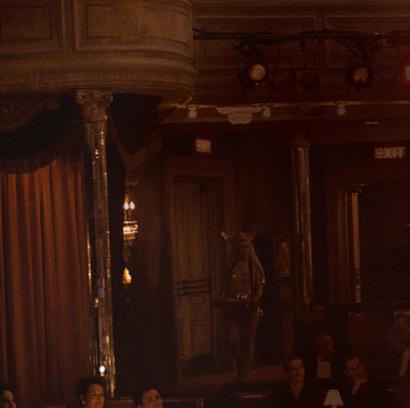





Atl a nta’s SIREN SONG
 Written By Candice Dyer
Written By Candice Dyer
ara, you’re gone with the wind. We’re Wakanda now.
Marvel’s latest blockbuster, Black Panther: Wakanda Forever, was largely produced in Georgia, where 20% of Disney’s content is filmed. In fact, several full-scale production facilities are located in and around Atlanta, including Tyler Perry Studios, Eagle Rock Studios and Trilith Studios (formerly Pinewood Atlanta).
The direct spend of film and television projects here in 2022 was $4.4 billion. This burgeoning industry has inspired a media moniker: “Y’allywood.” If you just groaned and rolled your eyes, you’re in step with the insiders.
“Please, please, please don’t call us Y’allywood or ‘the Hollywood of the South,’” pleads Suzan Satterfield, a writer, producer and director with Picture Window Prods. who also reps the PGA’s Atlanta Chapter. “Those nicknames suggest that we’re just a backlot or subsidiary of Hollywood.”
The fact is, Atlanta boasts its own sui generis, organically grown movie industry that differs from entertainment hubs on the West and East Coasts. The city has also been home to such acclaimed television series as Atlanta, Ozark and Stranger Things, and is currently hosting several high-profile films, including Francis Ford Coppola’s long-anticipated Megalopolis, the Kevin Hart Christmas movie Dashing Through the Snow and the Nicole Kidman romantic comedy A Family Affair
With thousands of movies to its credit, Georgia was recognized in 2022 by Business Facilities magazine as the No. 1 state for motion picture and television production. Even at the height of the pandemic, Atlanta was home to 242 film productions. More and more filmmakers are seduced by the city’s vibrant, sultry Southern hospitality, for a variety of reasons.
“Our diversity, our unique history, and our longing to be recognized as our own market sometimes get lost in the flash of big productions and political news,” says Satterfield, who was an exec producerdirector on HGTV’s Mega Dens, shot almost entirely in the Atlanta area for five seasons. “Atlanta has a very cooperative spirit, which you don’t find everywhere.”
NATURALLY DIVERSE
That spirit of cooperation and the contributions of underrepresented voices go hand in hand. “Atlanta has one of the most naturally diverse workforces in our industry,” says Melissa Simpson, executive director of Film Impact Georgia, a nonprofit that helps develop and promote independent work. “This goes for both studio and independent films. FIG runs a biannual film grant, and our most recent cycle’s demographics include BIPOC filmmakers representing 73% of submissions, while LGBTQ+ filmmakers represented 29%.
Autumn Bailey-Ford, a producer with more than 30 films to her credit, founded Atlanta-based Autumn Bailey Entertainment, one of the few women-owned production companies in the Southeast. “I believe that the Atlanta film community is unique in its own right,” she says. “We work together as a family, which has been the cause of our rise to power. There is power in teamwork and numbers, and when Georgia’s film community decided to band together, the rest of the world took notice.”
The industry’s roots date back to the early 1970s, when then-Governor Jimmy Carter established a film office. Its first vehicle? Deliverance (1972), which shot primarily in Rabun County in northeastern Georgia and got the ball rolling. Filmmakers who followed found a welcoming locale with a year-round temperate climate, ingratiating locals and varied geography. The state is blessed with photogenic mountains, beaches, quaint small towns and urban-industrial cityscapes to accommodate most location needs. Then came the 2004 biopic Ray—a pivotal project about homegrown music legend Ray Charles, who popularized Georgia’s state song.
The rub is that the bulk of Ray was filmed in Louisiana, “which really irritated and hurt the pride of our legislators,” says Lee Thomas, deputy commissioner of the Georgia Film Office in the Georgia Department of Economic Development.
MULTIPLE INCENTIVES
Georgia legislators promptly turned the perceived slight into action. State leaders began experimenting with incentives in 2005 and saw the results in 2007: $132 million in direct spend. They doubled down in 2008 with the Georgia Entertainment Industry Investment Act, which grants an income tax credit of 20% to qualified productions. Those include feature films, television movies or series, documentaries, commercials and music videos. If the project embeds a Georgia logo and link to ExploreGeorgia.org on its landing page, an extra 10% tax credit applies.
“It always starts and ends with these great tax incentives,” says Patrick Markey, executive producer of Ozark, the Netflix series that recently aired its season. “But there are additional attractive features.”
The so-called “Silicon Peach,” Atlanta is an ideal place for starry-eyed dreamers, adds Markey, whose son is a Georgia camera operator. Nightlife is lively and the housing is more affordable than in rival cities. “It’s a congenial, cohesive place, where up-and-comers tend to support each other,” he says.
The first producer to take advantage of the tax credits was Tyler Perry, who gave Madea one plush lair. Today Tyler Perry Studios comprises a 330-acre lot in the heart of Atlanta, on the historic grounds of the former Fort McPherson army base. The sprawling complex is one of the largest production facilities in the country, with 40 buildings on the National Register of Historic Places, 12 purpose-built soundstages, 200
acres of green space and a diverse backlot.
The major studio is testament to an indigenous talent pool and infrastructure with its own cultural stamp. “The industry leaders have worked to develop our community as originators and creators,” says Satterfield, “and not just providers of locations, secondary cast and BTL production talent.”
The Georgia Film Office’s “Camera Ready Communities” program connects producers with skilled county liaisons who provide resources such as lodging and assistance with local permitting laws. You can locate a gamut of professionals, from hair and makeup artists to traffic control specialists—Traffic Safety Georgia provides services tailored to filming.
RESOURCE RICH
“The geography is a lure,” say’s Ozark’s Markey. “We used two lakes, Lanier and Allatoona, to double for the Ozarks region. And transportation is easy, with the international airport.” Markey credits tax breaks, talented crews, soundstages and other infrastructure features that made filming locally a no-brainer. “You don’t come here and have to reinvent the wheel,” he says. “Atlanta really has everything you need to make a good show.”
Georgia currently has more than 4 million square feet of stage space with another 3 million under construction, and companies like Gray Television are hard at work creating new state-of-the-art facilities.
Then there are the human resources, so to speak.
“What I really love most about my work is the friendships, the relationships,” says Beth Talbert, vice president of studio operations at Eagle Rock Studios, the largest stage complex under one roof in the U.S. “Most of my clients today are more than business associates; they are friends.”
Talbert started in the industry more than 20 years ago in Los Angeles as an assistant at 20th Century Fox. She relocated to metro Atlanta about five years ago. “I never dreamed I would end up in Georgia,” she says, “but this is where the content is manufactured.”
Atlanta is still known as the “Black Mecca,” with an entertainment industry that is richly diverse, befitting a place nicknamed “the city too busy to hate.”
Cas Sigers Beedles and Terri J. Vaughn launched Nina Holiday Entertainment to create stories for women who look like them, and they have been producing projects for more than a decade. Their first film, A Cross to Bear (2012), starred Euphoria’s Storm Reid, who was unknown at the time. The two are now coproducing the feature film Becoming Noble for Paramount. The feature Scheme Queens, which Beedles wrote, directed, and produced, was shot in Atlanta with a local cast and crew. It will debut on BET Her.
“At least 50% of my crew are people of color, and you can’t say that in other places,” says Beedles, who, along with 19 other Black women, founded Reel Divas—an initiative
















































to promote Black writers, producers, and directors and to increase awareness of Atlanta as a production hub.
NAVIGABLE INFRASTRUCTURE
The city’s film industry is advanced enough to have established infrastructure, she says, but it is new enough, and navigable enough, to feel like an open frontier.
“In our system, a lot gets done just by word of mouth, and it’s also easy to reach out and touch someone,” Beedles says. “It’s easy to get your screenplay read–-it definitely isn’t in New York or Los Angeles. We all tend to know each other. If you asked me to refer you to some Black female directors, I could rattle off at least four names, and you wouldn’t have to go through an agent to reach them. You can just call up a network studio here and say, ‘Hey, I have a film.’ Again, you can’t do that in other places.”
At a time when animation and gaming were relatively unknown in Georgia, Asante Bradford, a Los Angeles native, relocated to Atlanta. There he created 3D animation short films that won multiple awards. To showcase his interest in animation and gaming, Bradford founded the Independent Black Film Festival (2003–08), which screened shorts and features highlighting those genres. Today he is the senior industry engagement manager for the Georgia Center of Innovation, which promotes creative media.
“While considering the relationship between film and culture, it is important to keep in mind that the diverse population in Atlanta will form it,” he says, “but it is also constantly changing from one period to the next. You will see more and more writers rooms. As more IP is created and greenlit here in Georgia, you will see more stories that reflect our Southern culture and style, encompassing language, religion, cuisine, social habits, music and arts.”
Kathryn Dean has been a producer on Donald Glover’s television smash Atlanta, which concluded its fourth and final season in November. “I came from New York City and worked there for years,” she says. “I love working in Atlanta. It’s the best of LA and NYC combined. The best thing in my mind about working here is that you have a truly diverse group of socioeconomic backgrounds coming together. It touches on that magic wish for many walks of life to come together and make something amazing.”
Adds Simpson: “We have folks who are still willing to elevate each other knowing that a rising tide lifts all boats.”

There are also on-theground pipelines of fresh talent. Georgia State University, Clayton State University,
and the Savannah College of Art and Design all have filmoriented majors. The Georgia Film Academy, a collaboration of the University System of Georgia and the Technical College System of Georgia, is a three-semester program with a paid internship for real-world experience. “We’re growing the next generation of filmmakers,” Thomas says.
And if one of them wants to update Gone With the Wind which was shot on LA backlots—and make it woke, Atlanta still has plenty of petticoat skirts, columned mansions and drawling creatives. Just don’t call it Y’allywood. ¢
RESOURCES
Georgia Film Office georgia.org
Camera Ready Communities Program cameraready.georgia.org
Office of Film & Entertainment for the City of Atlanta atlantaga.gov/ government/mayors-office/executiveoffices/office-offilm-entertainment
Traffic Safety Georgia trafficsafetyga.com
The Reel Divas linkedin.com/in/reeldivas
Film Impact Georgia filmimpactgeorgia.org
Producers Guild Atlanta Chapter producersguild.org
School of Film, Media & Theatre, Georgia State University fmt.gsu.edu
Savannah College of Art and Design scad.edu
Georgia Film Academy, Clayton State University clayton.edu
BEST PICTURE

Greg Berlanti, p.g.a.
Sarah Schechter, p.g.a.
Robbie Rogers, p.g.a.
Cora Palfrey, p.g.a.
Philip Herd, p.g.a.
“A MASTERPIECE ... will leave you with a sense of galvanizing hope”
MARKING TIME
Producer Julie Ansell shares her thoughts on bringing a controversial Judy Blume classic to life as a theatrical feature, and why it took more than 50 years for the author to sign off on it.

Are You There God?
It’s Me, Margaret Julie Ansell, p.g.a.
Given the trove of books written by acclaimed author Judy Blume—more than 25 children’s and young-adult novels, with more than 80 million copies sold—theatrical adaptations have been surprisingly rare. In fact, only Tiger Eyes reached the big screen. That was in 2012, 31 years after its publication. Come April, though, another Blume classic, Are You There God? It’s Me, Margaret, will be arriving at a theater near you, courtesy of Gracie
Films and Lionsgate.
Producer Julie Ansell—who began her career at Gracie Films, eventually rising to president of motion pictures in 1998—has worked closely with company founder James L. Brooks on several movies, including Jerry Maguire (1996) and As Good as It Gets (1997). Her producer credits include How Do You Know (2010), Spanglish (2004) and Riding in Cars With Boys (2001).
Are You There God? marks the second collaboration between Ansell and writer-director Kelly Fremon Craig after The Edge of Seventeen (2016), another comingof-age drama, but centered around a trou-
bled high schooler. Margaret’s protagonist is a sixth-grader. The Blume book deals with issues that were considered risqué for middle-school readers at the time of publication (1970), like menstruation and religious skepticism. The frankness of her themes has made Blume a frequent target of censors, but no less lionized by the literary establishment. Are You There God? was selected by The New York Times as the Outstanding Book of The Year.
Ansell, who earned the Producers Mark for her efforts, addresses what makes Blume’s story timeless, and Gracie Film’s approach toward maintaining the book’s integrity.
GIVEN THE DIVISIVE POLITICAL CLIMATE, WERE THERE ANY CONCERNS ABOUT THE SUBJECT MATTER GIVEN THE TENDER AGE OF THE MAIN CHARACTERS?
The top priority for us was honoring Judy Blume’s classic book, a book that women have grown up with for generations. The idea that somehow a story depicting female puberty could still be controversial 30 years after the book was published was reason in itself to make the movie. Very few films or television shows have fully explored this time in every woman’s life: growing breasts, getting her period, and the emotions and fear that surround all of it. Judy’s book has allowed women to feel like they aren’t alone.
WHY DID IT TAKE MORE THAN 50 YEARS FOR MS. BLUME TO SIGN OVER THE RIGHTS?

Are You There God? It’s Me, Margaret is the crown jewel among many diamonds in Judy’s oeuvre. It was her first baby (among the author’s young-adult novels) and is very close to her heart. Seeing a bad or even mediocre movie made from it was, I imagine, a scary prospect. But as the 50th anniversary of the publication of Margaret approached, she was willing to at least discuss a film adaptation. The combination of Jim Brooks/Gracie Films producing and Kelly Fremon Craig writing and directing gave her a comfort level and confidence that now is the time.
IS YOUR MOVIE GEARED TOWARD YOUNGER AUDIENCES?
Our core audience is really women of all ages, and men who are open to a story about their wives/sisters/daughters. Puberty hits us all, and whether you are a teenager in the throes of it or a middle-aged woman remembering the day she got her first period, the story hits close to home. Our film is a comedy-dra-
ma that looks at three generations of women who are all at a crossroads.
IS THE FILM VERSION ALSO SET IN 1970, WHEN THE BOOK WAS PUBLISHED, OR IS THE TIME FRAME CONTEMPORARY?
We kept the film set in 1970 as that seemed the best way to stay true to the book. While teenagers today obviously have much more access to information about puberty online and through the perpetual presence of cell phones, the emotions, difficulties and joys of puberty remain the same.
CAN YOU TELL US ABOUT AN OBSTACLE YOU ENCOUNTERED AND HOW YOU OVERCAME IT?
We were faced with a difficult issue about a week into production when the schedule of one of our actresses became incompatible with the production schedule. We were obviously locked into several locations and were walking a thin line juggling all the other actors’ availabilities. After looking at the possible budgetary hit and the flexibility of our locations, we decided the best course of action was to take a two-week hiatus in the middle of our schedule. It honestly turned out to be a blessing in disguise. The two weeks gave the whole crew some rest, while at the same time allowing us to review what we had shot so far, which informed the rest of production. It allowed a real focus and continuity we would not have achieved otherwise.
THE STORY IS SET MOSTLY IN THE NEW JERSEY SUBURBS; WHY SHOOT IN NORTH CAROLINA?
The tax incentives were a big draw, as was the weather. Our story spans all seasons, and thus by shooting in the spring in Charlotte we were able to easily cover spring and summer. A little snow and visual effects pulled off fall and winter. There were some wonderful neighbor-
hoods that felt like 1970s suburban New Jersey, and we were able to gather a strong crew from Charlotte-Wilmington, as well as drawing from Atlanta.
GRACIE FILMS IS KNOWN FOR WORKSHOPPING ITS SCRIPTS TO A FINE POLISH IN PREPRODUCTION. WAS THAT THE CASE WITH KELLY FREMON CRAIG’S ADAPTATION?
Absolutely! The script is always vitally important to us, but especially on this project as we were adapting a beloved and important book. I believe Kelly worked on this script with Jim’s guidance for over a year. It was a real challenge to adapt the story and spirit of the book but at the same time, create a movie with pace, drama, emotion and, of course, humor. ¢
Certification via the Producers Mark indicates that a producer performed a major portion of the producing functions on a specific project.
Criteria, its definition, the process for earning the mark and other particulars can be viewed at producersguild.org.Julie Ansell

MEMBER BENEFITS
■ Access to exclusive programs such as PGA Mentoring (including one-on-one, TV Basecamp and Film Basecamp) and webinars featuring the most experienced producers in the entertainment industry
■ Admission to special PGA pre-release screenings and Q&A events (in person, predominantly in LA and NY, and accessible to all when virtual)
■ Voting privileges in the prestigious Producers Guild Awards, and access to physical and digital screeners during awards season
■ Exclusive discounts on industry services and events

■ Grow your network and find creative collaborators with the PGA’s Member Directory, accessible only to PGA Members.
■ Full access to PGA website, including events, calendar, social networking tools, and extensive members-only video library
■ Automatic receipt of Job Bulletins that match your skill and background through Hire PGA, a concierge service for employers
■ Free access to many PGA events and discounts on programs, such as the Produced By conferences
■ Complimentary subscription to Produced By



A Doom Generation Parable
Written By Steve ChagollanThe first thing you see on the screen when viewing The Living End (1992) is the phrase “An Irresponsible Movie by Gregg Araki.” The film made its debut at Sundance in 1992, a watershed moment for the so-called New Queer Cinema movement. Other gay-themed features that shared the bill at Park City that year were Swoon, Tom Kalin’s period, black-and-white meditation based on the Leopold and Loeb kidnap/murder case, and Christopher Munch’s The Hours and Times, a fictionalized account of John Lennon’s holiday in Spain with the Beatles’ closeted gay manager, Brian Epstein.
But it was Araki’s film that was the most audacious, helping break open the floodgates in its explicitly frank depiction of queer sexuality. The movie centers on two lovers on the run: Jon, a film critic who has just learned that he’s HIV positive, and Luke, a nihilistic hustler with a gun and some scores to settle with society. It was described by some as a “gay Thelma and Louise,” but its gritty, grainy, guerilla sensibility couldn’t be further removed from a Ridley Scott production.
Produced by Jon Gerrans and Marcus Hu, co-presidents of Strand Releasing, The Living End revels in its unvarnished, Godardian take on LA’s LGBTQ subculture and its excoriating view of the Bush 1 years and its handling of the HIV crisis. It also takes a cheeky swipe at mainstream cinema and the prevailing indie film movement.
In the film, Jon is in the midst of writing an essay on “The Death of Cinema,” and there are references to gay cinema pioneers Andy Warhol and Derek Jarman. In one scene, Luke kills three assailants wearing T-shirts emblazoned with Drugstore Cowboy and Sex Lies, and Videotape, one donning a cap with an Avenue Pictures logo.

So it’s a tad ironic that Drugstore Cowboy director and fellow New Queer Cinema proponent Gus Van Sant led a recent UCLA Film & Television Archive panel on the 30th anniversary of The Living End, with Araki reminiscing about the movement’s nascent days with a fellow filmmaker he clearly admires. Araki, a quintuple-threat producer-filmmaker whose Desperate Pictures dates back to 1989, called The Living End “very much a response to the AIDS crisis and Bush and Reagan,” equating it with the burgeoning activism of ACT UP and Queer Nation, “and is infused with that passion and anger.”
Emboldened by what he called “fearless queerness” and a punk-rock attitude, Araki—often with just Hu, Gerrans and a Bolex camera as crew—squeezed every penny out of their resources. “We were so broke,” recalls Hu, “that we ended up sending the film to (Dazed and Confused director) Rick Linklater and he actually shot Texas footage for us and sent it back.” The film was intended to chronicle a Kerouac-like cross-country road trip, but LA stood in for most of the locations.
Of that time, Araki recalled the sense of “dread and anxiety, and what it was like to be 25 or 30 years old and feel like you’re in a fucking war zone, and people were just dropping dead on the street. There was literally a black cloud over everybody, and it was something you thought about on a daily basis.”
FOR YOUR CONSIDERATION


OUTSTANDING PRODUCER OF THEATRICAL MOTION PICTURES



























